
Click here to place an order for topic brief service to get instant approval from your professor.

99 Botany Dissertation Topics ideas and examples
Table of Contents
What is a Botany?
Botany is a branch of biology for those students who are looking for Botany and Ecology dissertation topics and materials for master, undergraduate, and post-graduate students.
Dissertation project papers, seminar topics, proposals, titles, ideas, and materials are available for dissertation, thesis, and essay in Botany and Ecology department. Here is the list of dissertation project topics for BSc, MSc, and Ph.D. Botany and Ecology students.
Best Selected Botany Dissertation Topics List for college students
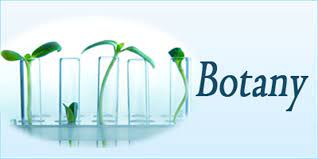
Below is the list of dissertation topics in botany, this list of research topics was created by our expert writers.
Common Botany Dissertation Topics
- Multifunctional Host Defense Peptides: Functional and Mechanistic Insights
- Plant Lectins in Cancer Therapeutics
- Structural and Functional Aspects of Recombinant Isoforms of Lentil Lipid Transfer Protein.
- Role of Antimicrobial Peptides in Plant Immunity
- Hydrophobic Control of the Bioactivity Antimicrobial Peptides.
- Plant Science’s Contribution to Fighting Viral Pandemics
- Botanical Drugs and Supplements During COVID-19 Pandemic
- Botany in the Time of COVID-19
- COVID-19: The role of Wild Plants in Health Treatment
- Synergy Among Antibacterial Peptides
- Vascular Function Discovered In Bryophyta
- Conflicting Phylogenies For Early Land Plants
- Phylogenomic Evidence For The Monophyly Of Bryophytes
- Land Plant Molecular Phylogenetics
- Mushrooms Cultivation and Nutritional Value
- Carbohydrate Metabolism in Biotrophic Plants
- Vortex-Induced Dispersal of A Plant-Pathogen By Raindrop Impact
- A Review on Ecology And Conservation.
- A Case Study of Fossil Plants
- Phylogenetic Nomenclature Of Tracheophyta
- Morphology of Vascular Plants
- Diversification Of Land Plants
- Systematics of Ferns And Lycophytes
- Classification of Pteridophytes
- Vascular Plant Apomorphias
Plant Ecology and Environment
- The Impact of Climate Change on Plant Phenology
- The Role of Plants in Carbon Sequestration: A Comparative Study
- The Effect of Urbanization on Native Plant Species
- The Role of Plants in Soil Stabilization and Erosion Control
- The Impact of Deforestation on Plant Biodiversity
- The Role of Wetland Plants in Water Purification
- The Effect of Invasive Plant Species on Local Ecosystems
- The Role of Mycorrhizal Fungi in Plant-Soil Interactions
- The Impact of Pollutants on Plant Growth and Development
- The Role of Plants in Restoring Degraded Ecosystems
Plant Physiology
- The Mechanisms of Drought Tolerance in Xerophytic Plants
- The Role of Photosynthesis Efficiency in Crop Yield Improvement
- The Effect of Light Intensity on Plant Growth and Development
- The Role of Plant Hormones in Regulating Stress Responses
- The Impact of Salinity on Plant Water Uptake Mechanisms
- The Role of Secondary Metabolites in Plant Defense Mechanisms
- The Effect of Temperature Fluctuations on Seed Germination Rates
- The Role of Plant Nutrient Uptake in Soil Fertility
- The Impact of Heavy Metals on Plant Physiology and Growth
- The Role of Phytochromes in Regulating Plant Development
Plant Genetics and Biotechnology
- The Role of Genetic Engineering in Crop Improvement
- The Impact of CRISPR Technology on Plant Genomics
- The Role of Polyploidy in Plant Evolution and Speciation
- The Effect of Genetic Diversity on Plant Population Resilience
- The Role of Transgenic Plants in Agriculture: Benefits and Risks
- The Impact of Genetic Modification on Plant Nutritional Content
- The Role of Epigenetics in Plant Adaptation to Environmental Stress
- The Effect of Gene Editing on Disease Resistance in Plants
- The Role of Plant Genomics in Understanding Crop Domestication
- The Impact of Biotechnology on Plant Breeding Techniques
Plant Conservation
- The Role of Botanical Gardens in Plant Conservation
- The Impact of Habitat Fragmentation on Plant Species Survival
- The Role of Seed Banks in Preserving Plant Genetic Diversity
- The Effect of Conservation Strategies on Endangered Plant Species
- The Role of In-Situ and Ex-Situ Conservation in Plant Preservation
- The Impact of Climate Change on Plant Conservation Efforts
- The Role of Community Participation in Plant Conservation Initiatives
- The Effect of Land Use Change on Plant Biodiversity
- The Role of Conservation Policies in Protecting Rare Plant Species
- The Impact of Ecotourism on Plant Conservation
Medicinal Plants
- The Role of Ethnobotany in Discovering New Medicinal Plants
- The Impact of Plant Secondary Metabolites on Human Health
- The Role of Medicinal Plants in Traditional Medicine Systems
- The Effect of Cultivation Practices on Medicinal Plant Potency
- The Role of Plant-Derived Compounds in Pharmaceutical Development
- The Impact of Overharvesting on Medicinal Plant Populations
- The Role of Medicinal Plants in Modern Healthcare
- The Effect of Climate Change on the Availability of Medicinal Plants
- The Role of Biotechnology in Enhancing Medicinal Plant Yield
- The Impact of Global Trade on Medicinal Plant Conservation
Plant-Pathogen Interactions
- The Role of Plant Immunity in Defending Against Pathogens
- The Impact of Fungal Infections on Crop Productivity
- The Role of Plant-Microbe Interactions in Disease Resistance
- The Effect of Plant Pathogens on Ecosystem Health
- The Role of Genetic Resistance in Controlling Plant Diseases
- The Impact of Viral Infections on Plant Growth and Development
- The Role of Biocontrol Agents in Managing Plant Diseases
- The Effect of Pathogen Pressure on Plant Evolution
- The Role of Plant Pathology in Sustainable Agriculture
- The Impact of Climate Change on Plant Disease Dynamics
Agricultural Botany
- The Role of Crop Rotation in Sustainable Agriculture
- The Impact of Soil Fertility on Crop Yield and Quality
- The Role of Cover Crops in Enhancing Soil Health
- The Effect of Organic Farming Practices on Plant Growth
- The Role of Integrated Pest Management in Crop Protection
- The Impact of Precision Agriculture on Crop Productivity
- The Role of Plant Breeding in Developing Climate-Resilient Crops
- The Effect of Irrigation Practices on Crop Water Use Efficiency
- The Role of Agroforestry in Sustainable Land Management
- The Impact of Genetically Modified Crops on Agricultural Biodiversity
Above is the list of botany dissertation topics check out our related posts for biology dissertation topics , chemistry dissertation topics , and biochemistry dissertation topics . If you are still looking for topics for a botany dissertation please fill out the form below and get our customized topic brief service from experts.
Paid Topic Mini Proposal (500 Words)
You will get the topics first and then the mini proposal which includes:
- An explanation why we choose this topic.
- 2-3 research questions.
- Key literature resources identification.
- Suitable methodology including raw sample size and data collection method
- View a Sample of Service
Note: After submitting your order please must check your email [inbox/spam] folders for order confirmation and login details. If the email goes in spam please mark not as spam to avoid any communication gap between us.
Get An Expert Dissertation Writing Help To Achieve Good Grades
By placing an order with us, you can get;
- Writer consultation before payment to ensure your work is in safe hands.
- Free topic if you don't have one
- Draft submissions to check the quality of the work as per supervisor's feedback
- Free revisions
- Complete privacy
- Plagiarism Free work
- Guaranteed 2:1 (With help of your supervisor's feedback)
- 2 Instalments plan
- Special discounts
Other Posts
- 39 Environmental Economics Dissertation Topics Ideas and Samples March 15, 2022 -->
- 39 Event Management Dissertation Topics Ideas February 12, 2022 -->
- 39 Experimental economics dissertation topics Ideas March 16, 2022 -->
- 39 Financial Economics Dissertation Topics Ideas March 17, 2022 -->
- 39 Health economics dissertation topics Ideas and Examples March 14, 2022 -->
- 39 Hospitality Management Dissertation Topics Ideas February 19, 2022 -->
- 39 Information Systems Dissertation Topics Ideas February 20, 2022 -->
- 39 Marketing Management Dissertation Topics Examples February 12, 2022 -->
- 39 Oil and Gas Management Dissertation Topics February 22, 2022 -->
- 39 Portfolio Management Dissertation Topics March 4, 2022 -->
- 39 Retail Management Dissertation Topics Ideas March 6, 2022 -->
- 39 Sports Management Dissertation Topics Ideas February 22, 2022 -->
- 39 Sports Tourism Dissertation Topics Ideas February 14, 2022 -->
- 39 Sustainable Tourism Dissertation Topics Ideas February 16, 2022 -->
- 39 Talent Management Dissertation Topics Examples March 8, 2022 -->
- 39 Travel and Tourism Dissertation Topics Ideas February 14, 2022 -->
- 47 Best Research Proposal Topics in Logistics March 1, 2022 -->
- 49 Biochemistry Dissertation Topics Ideas and Examples February 9, 2022 -->
- 49 Risk Management Dissertation Topics Ideas & examples February 27, 2020 -->
- 49 Waste Management Dissertation Topics Ideas February 27, 2020 -->
- 53 Best Autism Dissertation Topics & Autism Dissertation Ideas November 18, 2021 -->
- 53 Best Dissertation topics on domestic violence & Examples November 30, 2021 -->
- 53 Sports Dissertation Topics and examples in 2023 March 17, 2020 -->
- 54 Best Development Studies Dissertation Topics Ideas & Samples November 23, 2021 -->
- 56 Best Critical Care Nursing Research Topics ideas with examples November 18, 2021 -->
- 57 Best Ecommerce Research Topics Ideas and Examples November 30, 2021 -->
- 57 Best Forensic Science Dissertation Topics in 2023 March 17, 2020 -->
- 57 Best Real Estate Dissertation Topics in 2023 March 16, 2020 -->
- 57+ Best Health and Social Care Dissertation Topics in 2023 March 16, 2020 -->
- 59 Anthropology Dissertation Topics Ideas & Examples March 17, 2020 -->
WhatsApp and Get 35% off promo code now!
100+ Botany Research Topics [Updated 2024]
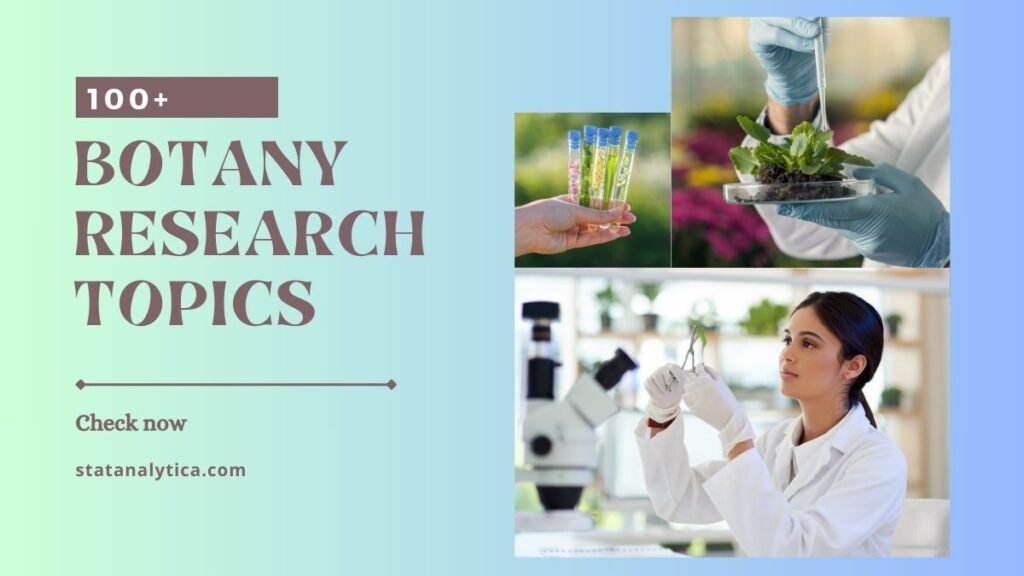
Botany, the scientific study of plants, holds the key to understanding the intricate and fascinating world of flora that surrounds us. As we delve into the realm of botany research, we uncover a vast array of botany research topics that not only contribute specifically to our scientific knowledge but also play an important role in addressing real-world challenges.
In this blog, we will embark on a journey through the rich landscape of botany research, exploring various captivating topics that researchers are delving into.
How to Select Botany Research Topics?
Table of Contents
Selecting an appropriate and engaging botany research topic is a crucial step in the research process. Whether you are a student working on a thesis, a scientist planning a research project, or someone passionate about exploring the wonders of plant biology, the right choice of topic can significantly impact the success and enjoyment of your research.
Here are some guidelines on how to select botany research topics:
- Identify Your Interests:
- Start by reflecting on your own personal interests within the field of botany. Consider the aspects of plant biology that fascinate you the most.
- Whether it’s plant physiology, taxonomy, ecology, genetics, or any other subfield, choosing a topic aligned with your interests can make the research process more enjoyable.
- Review Literature:
- Conduct a thorough review and it will be of existing literature in botany. Explore recent research articles, journals, and books to identify gaps in knowledge, emerging trends, and areas where further investigation is needed.
- This can help you find inspiration and identify potential research questions.
- Consider Relevance:
- Assess the relevance of your chosen topic to the current state of botany and its applications. Consider how your research could contribute to addressing real-world challenges, advancing scientific knowledge, or informing practical solutions.
- Relevant research topics often garner more attention and support.
- Evaluate Feasibility:
- Evaluate all possible feasibility of your chosen topic in terms of available resources, time constraints, and research capabilities.
- Consider the accessibility of study sites, the availability of equipment and materials, and the level of expertise required. A feasible research topic is one that aligns with your resources and constraints.
- Collaborate and Seek Guidance:
- Discuss your ideas with mentors, professors, or colleagues in the field.
- Collaborative discussions can provide valuable insights, help refine your research questions, and guide you toward topics that align with current research priorities.
- Consider working with a professional academic editor to review your work after you’ve finished writing it.
- Explore Emerging Technologies:
- Consider incorporating emerging technologies and methodologies in your research. This not only adds a contemporary dimension to your study but also opens up new possibilities for exploration.
- Technologies like CRISPR-Cas9, high-throughput sequencing, and remote sensing have revolutionized botany research.
- Think Interdisciplinary:
- Botany often intersects with various other disciplines, such as ecology, genetics, molecular biology, environmental science, and more.
- Consider interdisciplinary approaches to your research, as this can lead to innovative and comprehensive insights.
- Address Global Challenges:
- Botany research can play a crucial role in addressing global challenges like climate change, food security, and biodiversity loss.
- Choosing a topic that contributes to solving or mitigating these challenges adds societal relevance to your work.
- Explore Local Flora:
- If applicable, explore the flora of your local region. Investigating plant species native to your area can have practical implications for local conservation, biodiversity studies, and environmental management.
- Stay Inquisitive and Open-Minded:
- Keep an open mind and stay curious. Scientific research often involves unexpected discoveries, and being open to exploration can lead to novel and exciting findings.
- Be willing to adapt your research questions based on your findings and new insights.
100+ Botany Research Topics For All Students
Plant physiology.
- The Role of Plant Hormones in Growth and Development
- Mechanisms of Photosynthesis: A Comprehensive Study
- Impact of Environmental Stress on Plant Physiology
- Water Use Efficiency in Plants: Regulation and Adaptation
- Nutrient Uptake and Transport in Plants
- Signaling Pathways in Plant Defense Mechanisms
- Regulation of Flowering Time in Plants
- Physiological Responses of Plants to Climate Change
- Role of Mycorrhizal Associations in Plant Nutrition
- Stress Tolerance Mechanisms in Halophytic Plants
Plant Taxonomy
- Phylogenetic Analysis of a Plant Family: Case Study
- Integrating Molecular Systematics in Plant Taxonomy
- Plant DNA Barcoding for Species Identification
- Revision of a Plant Genus: Taxonomic Challenges
- Cryptic Species in Plant Taxonomy: Detection and Implications
- Floristic Diversity in a Specific Geographic Region
- Evolutionary Trends in Angiosperms
- Ethnobotanical Contributions to Plant Taxonomy
- Application of GIS in Plant Taxonomy
- Conservation Status Assessment of Endangered Plant Species
Plant Ecology
- Ecosystem Services Provided by Plants
- Dynamics of Plant-Animal Interactions in a Habitat
- Impact of Invasive Plant Species on Native Flora
- Plant Community Composition Along Environmental Gradients
- Ecological Consequences of Plant-Pollinator Decline
- Microbial Interactions in the Rhizosphere
- Plant Responses to Fire: Adaptation and Recovery
- Climate Change Effects on Plant Phenology
- Restoration Ecology: Reintroducing Native Plants
- Plant-Soil Feedbacks and Ecosystem Stability
Plant Pathology
- Molecular Mechanisms of Plant-Pathogen Interactions
- Emerging Plant Diseases: Causes and Consequences
- Integrated Disease Management in Agriculture
- Fungal Pathogens: Diversity and Control Strategies
- Plant Immunity and Defense Mechanisms
- Resistance Breeding Against Viral Pathogens
- Bacterial Diseases in Crop Plants: Diagnosis and Management
- Impact of Climate Change on Plant Pathogen Dynamics
- Biocontrol Agents for Plant Disease Management
- Genetic Basis of Host Susceptibility to Plant Pathogens
Ethnobotany
- Traditional Medicinal Plants: Documentation and Validation
- Cultural Significance of Plants in Indigenous Communities
- Ethnobotanical Survey of a Specific Region
- Sustainable Harvesting Practices of Medicinal Plants
- Traditional Plant Use in Rituals and Ceremonies
- Plant-Based Foods in Indigenous Diets
- Ethnopharmacological Studies on Antimicrobial Plants
- Conservation of Ethnobotanical Knowledge
- Ethnobotanical Contributions to Modern Medicine
- Indigenous Perspectives on Plant Conservation
Genetic and Molecular Biology
- CRISPR-Cas9 Applications in Plant Genome Editing
- Epigenetics in Plant Development and Stress Response
- Functional Genomics of Plant Responses to Abiotic Stress
- Genetic Diversity in Crop Plants and its Conservation
- Genetic Mapping and Marker-Assisted Selection in Plant Breeding
- Genome Sequencing of Non-Model Plant Species
- RNA Interference in Plant Gene Regulation
- Comparative Genomics of Plant Evolution
- Genetic Basis of Plant Adaptation to Extreme Environments
- Plant Epigenome Editing: Methods and Applications
Plant Anatomy and Morphology
- Comparative Anatomy of C3 and C4 Plants
- Xylem and Phloem Development in Plants
- Leaf Anatomy and Adaptations to Photosynthesis
- Morphological Diversity in Plant Reproductive Structures
- Evolution of Floral Symmetry in Angiosperms
- Root Architecture and its Functional Significance
- Stem Cell Dynamics in Plant Meristems
- Comparative Morphology of Succulent Plants
- Tissue Regeneration in Plants: Mechanisms and Applications
- Wood Anatomy and Tree-Ring Analysis in Dendrochronology
Climate Change and Plant Responses
- Impact of Global Warming on Alpine Plant Communities
- Plant Responses to Elevated CO2 Levels
- Drought Tolerance Mechanisms in Plants
- Shifts in Plant Phenology Due to Climate Change
- Climate-Induced Changes in Plant-Pollinator Interactions
- Carbon Sequestration Potential of Forest Ecosystems
- Ocean Acidification Effects on Seagrass Physiology
- Plant Responses to Increased Frequency of Extreme Events
- Alpine Plant Adaptations to Harsh Environments
- Climate-Driven Changes in Plant Distribution and Biogeography
Emerging Technologies in Botany Research
- Application of Machine Learning in Plant Phenotyping
- Nanotechnology in Plant Science: Current Status and Future Prospects
- Metagenomics in Studying Plant Microbiomes
- Remote Sensing for Monitoring Plant Health
- High-Throughput Sequencing in Plant Genomics
- CRISPR-Based Gene Drives for Ecological Restoration
- Advances in Plant Imaging Techniques
- Synthetic Biology Approaches in Plant Engineering
- Augmented Reality Applications in Plant Biology Education
- Digital Herbariums: Integrating Technology in Plant Taxonomy
Misc Botany Research Topics
- Metabolic Pathways in Plant Secondary Metabolism: Regulation and Significance
- Population Genomics of Endangered Plant Species: Implications for Conservation
- Impact of Soil Microbes on Plant Health and Productivity
- Evolutionary Dynamics of Plant-Pathogen Coevolution: Insights from Molecular Data
- Application of CRISPR-Based Gene Editing for Improving Crop Traits
- Phytochemical Profiling of Medicinal Plants for Drug Discovery
- Investigating the Role of Epigenetic Modifications in Plant Stress Responses
- Role of Plant Volatile Organic Compounds (VOCs) in Ecological Interactions
- Biotic and Abiotic Factors Influencing Plant Microbiome Composition
- Molecular Basis of Plant-Microbe Symbiosis: Lessons from Nitrogen-Fixing Associations
How to Make Botany Research Successful?
Conducting successful botany research involves a combination of careful planning, effective execution, and thoughtful analysis. Whether you are a student, a researcher, or someone conducting independent studies, here are key tips to ensure the success of your botany research:
- Establish Clear Objectives: Clearly articulate the goals and objectives of your research. What specific inquiries do you intend to address? A well-defined research focus serves as a guiding framework, ensuring your efforts remain purposeful and on course.
- Conduct an In-Depth Literature Review: Immerse yourself in the existing body of literature within your field of study. Identify gaps, discern trends, and pinpoint areas where your research could contribute significantly. A thorough literature review lays a robust groundwork for shaping your research design.
- Choose an Appropriate Research Topic: Select a research topic that resonates with your interests, aligns with your expertise, and addresses the current needs of the scientific community. Ensure that the chosen topic is not only feasible but also harbors the potential for impactful outcomes.
- Develop a Sound Research Plan: Create a detailed research plan outlining the methodologies, timelines, and resources required. A well-structured plan helps in efficient execution and minimizes the risk of unforeseen challenges.
- Utilize Cutting-Edge Technologies: Stay updated with the latest technologies and methodologies in botany research. Incorporate advanced tools such as high-throughput sequencing, CRISPR-Cas9 , and remote sensing to enhance the precision and efficiency of your research.
- Collaborate and Seek Guidance: Collaborate with experts in the field, seek mentorship, and engage in discussions with colleagues. Networking and collaboration can provide valuable insights, guidance, and potential avenues for collaboration.
- Ensure Ethical Considerations: Adhere to ethical guidelines and standards in your research. Obtain necessary approvals for human subjects, follow ethical practices in plant experimentation, and ensure the responsible use of emerging technologies.
- Implement Robust Experimental Design: Design experiments with attention to detail, ensuring that they are replicable and provide statistically significant results. Address potential confounding variables and incorporate controls to enhance the reliability of your findings.
- Collect and Analyze Data Thoughtfully: Implement systematic data collection methods. Use appropriate statistical analyses to interpret your results and draw meaningful conclusions. Transparent and well-documented data analysis enhances the credibility of your research.
- Regularly Review and Adapt: Periodically review your progress and be open to adapting your research plan based on emerging findings. Flexibility and responsiveness to unexpected results contribute to a dynamic and successful research process.
- Communicate Your Research Effectively: Share your findings through publications, presentations, and other relevant channels. Effective communication of your research results contributes to the broader scientific community and enhances the impact of your work.
- Foster a Collaborative Research Environment: Encourage collaboration within your research team. A collaborative environment fosters creativity, diverse perspectives, and a collective effort towards achieving research goals.
- Contribute to Sustainable Practices: If your research involves fieldwork or plant collection, adhere to sustainable practices. Consider the impact on local ecosystems and strive to minimize any negative consequences.
- Stay Resilient: Research can have its challenges, setbacks, and unforeseen obstacles. Stay resilient, remain focused on your goals, and view challenges as opportunities for growth and learning.
- Celebrate Achievements and Learn from Failures: Acknowledge and celebrate your achievements, no matter how small. Learn from any setbacks or failures and use them as lessons to refine and improve your research approach.
In the vast and diverse field of botany research, scientists are continually unraveling the mysteries of the plant kingdom. From the intricate processes of photosynthesis to the challenges posed by emerging plant diseases and the potential of cutting-edge technologies, botany research is a dynamic and ever-evolving field.
As we delve deeper into the green secrets of the plant world, our understanding grows, offering not only scientific insights but also solutions to address pressing global challenges such as food security, biodiversity loss, and climate change.
The exploration of botany research topics is a journey of discovery, paving the way for a sustainable and harmonious coexistence with the plant life that sustains our planet.
Related Posts

Step by Step Guide on The Best Way to Finance Car

The Best Way on How to Get Fund For Business to Grow it Efficiently
- How it works
"Christmas Offer"
Terms & conditions.
As the Christmas season is upon us, we find ourselves reflecting on the past year and those who we have helped to shape their future. It’s been quite a year for us all! The end of the year brings no greater joy than the opportunity to express to you Christmas greetings and good wishes.
At this special time of year, Research Prospect brings joyful discount of 10% on all its services. May your Christmas and New Year be filled with joy.
We are looking back with appreciation for your loyalty and looking forward to moving into the New Year together.
"Claim this offer"
In unfamiliar and hard times, we have stuck by you. This Christmas, Research Prospect brings you all the joy with exciting discount of 10% on all its services.
Offer valid till 5-1-2024
We love being your partner in success. We know you have been working hard lately, take a break this holiday season to spend time with your loved ones while we make sure you succeed in your academics
Discount code: RP23720

Published by Nicolas at January 17th, 2024 , Revised On January 23, 2024
A Breakdown Of Common Topics In Botany Papers
Botany, the scientific study of plants, encompasses a diverse array of disciplines that delve into the intricacies of plant life. As a cornerstone of biological sciences, botany provides invaluable insights into the fascinating world of flora, from the microscopic structures of cells to the vast ecosystems where plants thrive. In this blog, we will discuss the most important topics in botany papers at universities in Canada .
Table of Contents
Botany As A Scientific Discipline
Botany, also known as plant biology, is a branch of biology that focuses on the study of plants, including algae, fungi, mosses, ferns, conifers, and flowering plants. The discipline encompasses a broad spectrum of topics, ranging from the molecular and cellular levels to ecological and evolutionary aspects. Botanists examine plant structure, function, growth, reproduction, and their interactions with the environment.
Botany research papers play a pivotal role in advancing our understanding of the plant kingdom. These scholarly articles serve as conduits for sharing groundbreaking research, new discoveries, and innovative methodologies within the scientific community. Through the dissemination of knowledge in peer-reviewed journals, botany papers contribute to the collective body of information that shapes the trajectory of botanical science.
The importance of a botany thesis or dissertation extends beyond academic circles, influencing agricultural practices, environmental conservation, pharmaceutical discoveries, and even our basic understanding of life on Earth.
Taxonomy, a fundamental aspect of botany, is the science of classifying and naming living organisms. In the context of plants, taxonomy involves categorizing them based on shared characteristics, relationships, and evolutionary history. The systematic organization provided by taxonomy serves as a crucial framework for understanding plant diversity, aiding in communication among scientists and facilitating further research.
In botany research paper format , taxonomy is a cornerstone that underpins various studies, providing a structured approach to exploring and documenting the vast array of plant species. By classifying plants into groups based on shared traits, researchers can unravel the evolutionary relationships among different taxa, contributing to our understanding of plant evolution and biodiversity.
Phylogenetic Analysis
Phylogenetic analysis is a central theme in botany papers that explore the evolutionary relationships between plants. This approach involves constructing phylogenetic trees or cladograms, visually representing the evolutionary history and genetic relatedness of different plant species. Molecular data, such as DNA sequences, are often used to decipher these relationships, offering insights into the branching patterns and common ancestors of plants.
Systematics And Nomenclature
Systematics involves the study of the diversity of organisms and their evolutionary relationships. In botany papers, systematic research often focuses on classifying plants into hierarchical categories based on shared characteristics. This includes the establishment of rules and principles for naming and classifying plants, known as nomenclature.
Botanists employ a standardized system of nomenclature, governed by the International Code of Nomenclature for algae, fungi, and plants (ICN), to assign scientific names to plant species.
Taxonomy Research Paper Topics
- Integration of Morphological and Molecular Data in Modern Taxonomy
- The Impact of Next-Generation Sequencing on Resolving Taxonomic Uncertainties
- Taxonomic Revisions: Case Studies in Reevaluating Species Boundaries
- The Role of DNA Barcoding in Identifying and Classifying Biodiversity
- Challenges and Opportunities in Integrating Traditional and Molecular Taxonomy
- Evolutionary Trends in Taxonomic Diversification: Lessons from Key Plant Families
- Exploring Cryptic Species: Hidden Diversity in Taxonomic Classification
- The Influence of Environmental Factors on Taxonomic Variation in Microorganisms
- Taxonomy and Conservation: Prioritizing Species for Protection
- Phylogenetic Reconstruction and Biogeography: Tracing Evolutionary History
Plant Physiology
Plant physiology is the branch of botany that explores the internal processes and mechanisms governing the life and functioning of plants. It discusses the physiological activities that occur within plant cells, tissues, and organs. Understanding plant physiology is essential for unravelling the fundamental processes that sustain plant life and influence growth, development, and responses to environmental stimuli.
The physiological processes in plants are diverse and interconnected, involving molecular, biochemical, and biophysical mechanisms. These processes include photosynthesis, respiration, water and nutrient uptake, hormonal regulation, and many others. Each contributes to the overall health and functionality of plants, allowing them to adapt to changing conditions and thrive in various environments.
Photosynthesis And Respiration
Photosynthesis, a fundamental process in plant physiology, involves the conversion of light energy into chemical energy, primarily in the form of glucose. This process occurs in chloroplasts, where pigments such as chlorophyll capture sunlight and convert it into chemical energy through a series of complex biochemical reactions.
Water And Nutrient Uptake
Water and nutrient uptake are vital physiological processes that sustain plant life. Roots play a crucial role in absorbing water and essential nutrients from the soil, transporting them through the plant’s vascular system to support various physiological functions.
Researchers investigate how plants adapt to varying nutrient levels, the impact of mycorrhizal associations on nutrient uptake, and the strategies plants employ to cope with water stress. These studies contribute not only to our understanding of plant physiology but also have implications for optimizing agricultural practices and addressing challenges related to water and nutrient availability in different ecosystems.
Hormonal Regulation In Plants
Hormonal regulation is a complex and tightly controlled aspect of plant physiology that influences growth, development, and responses to environmental stimuli. Plant hormones, such as auxins, gibberellins, cytokinins, abscisic acid, and ethylene, play key roles in coordinating various physiological processes.
Plant Physiology Research Paper Topics
- Photosynthetic Efficiency in Response to Environmental Stressors: A Comparative Study
- Mechanisms of Water Transport in Plants: From Roots to Leaves
- The Role of Plant Hormones in Coordinating Growth and Development
- Metabolic Adaptations of Plants to Nutrient Limitation: Insights from Molecular Studies
- Stomatal Regulation and Water Use Efficiency in Crops: Implications for Agriculture
- Cellular Signaling in Plant Responses to Abiotic Stress: Unraveling the Molecular Mechanisms
- Impact of Elevated Carbon Dioxide Levels on Plant Physiology and Growth
- Nitrogen Metabolism in Plants: Integration of Nitrate and Ammonium Assimilation
- Role of Phytochromes in Plant Photomorphogenesis: From Seed Germination to Flowering
- Understanding the Molecular Basis of Plant-Pathogen Interactions: Host Defense Mechanisms
Ecology And Biodiversity
Ecology, a pivotal branch of botany, examines the relationships between organisms and their environments. In the context of plants, ecological studies shed light on how they interact with other living organisms, the physical and chemical characteristics of their habitats, and the impact of environmental factors on their growth and survival. Understanding the connections between plants and their surroundings is essential for elucidating ecological processes and conserving biodiversity.
Plants, as primary producers, play a foundational role in ecosystems by converting sunlight into energy through photosynthesis. Their interactions with soil microorganisms, herbivores, pollinators, and other plants contribute to the dynamic balance of ecosystems. Ecological studies in botany explore the flow of energy and nutrients within ecosystems, the coevolution of plants with other organisms, and the broader impact of these interactions on biodiversity.
Ecosystem Interactions
Botany papers frequently delve into the complex interactions between plants and their biotic and abiotic environments. Ecosystem interactions encompass a wide range of topics, including plant-animal interactions, mutualistic relationships, competition for resources, and the role of plants in shaping their ecosystems.
Research in this area may focus on the relationships within plant communities, exploring how different species coexist and compete for resources. Additionally, studies may investigate the role of plants in providing habitat and sustenance for other organisms, such as pollinators, herbivores, and decomposers.
Conservation Biology
Conservation biology is a critical facet of botany that addresses the preservation of plant species, ecosystems, and biodiversity. Botany papers in conservation biology explore the threats facing plant populations, the impact of habitat loss, climate change, and invasive species, and strategies for mitigating these challenges.
Researchers may investigate the distribution and abundance of rare or endangered plant species, assess the effectiveness of protected areas, and develop conservation plans to safeguard plant diversity. Conservation-oriented botany papers contribute valuable insights into the sustainable management of natural resources, restoration ecology, and the protection of plant species facing the risk of extinction.
Plant Adaptations To Environmental Factors
Plants have evolved a myriad of adaptations to cope with diverse environmental conditions. Botany papers exploring plant adaptations delve into the mechanisms that enable plants to thrive in specific habitats, resist environmental stressors, and respond to changing conditions.
Topics may include physiological adaptations, such as drought tolerance and salt resistance, as well as morphological adaptations, like specialized root structures or leaf modifications.
The research paper we write have:
- Precision and Clarity
- Zero Plagiarism
- High-level Encryption
- Authentic Sources

Ecology And Biodiversity Research Paper Topics
Genetics and genomics.
Plant genetics and genomics constitute a fascinating area of botany that explores the hereditary traits and molecular mechanisms governing plant development, evolution, and adaptation. Genetics delves into the study of individual genes, their inheritance patterns, and the variations that occur within populations, while genomics encompasses the detailed analysis of an organism’s entire set of genes (genome) and their functions.
Genetic Diversity
Genetic diversity is a fundamental aspect of plant biology that explores the variety of genetic material within a population or species. Botany papers often delve into the factors influencing genetic diversity, such as reproductive mechanisms, population size, and environmental pressures. Researchers study the distribution of genetic variations among plant populations to assess their adaptability, resilience, and potential responses to environmental changes.
Understanding genetic diversity is crucial for plant conservation, breeding programs, and the development of crops with improved traits. Botany papers in this domain contribute to our knowledge of the factors shaping genetic diversity and its implications for the long-term survival and evolution of plant species.
Molecular Markers And Genetic Mapping
Molecular markers and genetic mapping play a pivotal role in plant genetics by aiding in the identification and mapping of specific genes or genomic regions associated with particular traits. Botany papers may focus on the development and application of molecular markers, such as DNA sequences or protein variants, to track genetic variations within plant populations.
Genetic mapping involves creating maps that illustrate the locations of genes on a plant’s chromosomes. These maps provide insights into the inheritance patterns of traits and assist in the selection of desirable traits for breeding programs. Botany papers in this area contribute to the refinement of genetic maps, the discovery of quantitative trait loci (QTLs), and the advancement of marker-assisted breeding techniques.
Genetically Modified Organisms (GMOs)
The development and application of genetically modified organisms (GMOs) in agriculture and research are prominent topics in plant genetics. Botany papers related to GMOs explore the introduction of foreign genes into plant genomes to confer specific traits, such as resistance to pests, tolerance to environmental stress, or improved nutritional content.
Researchers in this field investigate the molecular mechanisms behind genetic modifications, assess the potential environmental and ecological impacts of GMOs, and explore ethical considerations associated with their use. Botany papers contribute to the ongoing dialogue surrounding the development and regulation of GMOs, addressing concerns related to biodiversity, food security, and the coexistence of genetically modified and non-modified crops.
Genetics And Genomics Research Paper Topics
- Genome-Wide Association Studies (GWAS): Applications in Unraveling Complex Traits
- CRISPR/Cas9 Technology: Current Advances and Ethical Implications in Genetic Engineering
- Functional Genomics: Integrating Genotype and Phenotype for a Comprehensive Understanding
- Epigenetic Modifications and Their Influence on Gene Expression in Development and Disease
- Population Genomics: Tracking Genetic Variation Across Different Populations
- Genetic Basis of Human Diseases: Insights from Genomic Medicine
- Comparative Genomics of Model Organisms: Unraveling Evolutionary Relationships
- The Role of Non-Coding RNAs in Gene Regulation and Genome Function
- Evolutionary Genomics: Studying Genetic Changes Over Geological Time Scales
- Personalized Genomics: Tailoring Medical Treatments Based on Individual Genetic Profiles
Plant Pathology
Plant pathology is a specialized field within botany that focuses on the study of plant diseases, their causes, and their impact on plant health and productivity. Just as animals can suffer from diseases, plants are susceptible to various pathogens, including fungi, bacteria, viruses, nematodes, and other microorganisms. Plant diseases can manifest as visible symptoms, such as wilting, discoloration, lesions, and deformities, ultimately affecting plant growth, development, and yield.
Identification And Control Of Plant Diseases
Botany papers in plant pathology often focus on the identification and control of plant diseases. Identification involves recognizing the causal agents of diseases, understanding the symptoms they induce, and distinguishing between different types of diseases. Researchers use a combination of field observations, laboratory tests, and molecular techniques to accurately identify pathogens and diagnose diseases.
Interactions Between Plants And Pathogens
The interactions between plants and pathogens form a central theme in botany papers related to plant pathology. Researchers delve into the molecular and biochemical mechanisms that govern the recognition and response of plants to invading pathogens. This includes the study of plant defence mechanisms, the activation of immune responses, and the ways in which pathogens evade or suppress plant defences.
Plant Pathology Research Paper Topics
- Emerging Plant Pathogens: Investigation and Management Strategies
- Role of Fungicides in Controlling Crop Diseases: Efficacy and Environmental Impact
- Molecular Mechanisms of Plant-Pathogen Interactions: Insights into Disease Resistance
- Epidemiology of Plant Viruses: Spread, Impact, and Control Measures
- Biological Control of Plant Pathogens: Harnessing Microbial Antagonists
- Genetic Resistance in Plants: Breeding for Disease Resistance in Crops
- Impact of Climate Change on Plant Disease Dynamics and Distribution
- Understanding Soil-Borne Pathogens: Management Approaches and Soil Health
- Emergence and Evolution of Fungal Pathogens: Genetic Diversity and Adaptation
- Integrated Disease Management in Agriculture: Combining Biological, Chemical, and Cultural Strategies
Ethnobotany
Ethnobotany is a multidisciplinary field that explores the relationships between plants and people, particularly focusing on the traditional knowledge and uses of plants by different cultures, especially indigenous communities. This interdisciplinary approach combines elements of anthropology, botany, ecology, and pharmacology to investigate how plants play a significant role in the cultural, spiritual, economic, and medicinal aspects of human societies.
The relevance of ethnobotany lies in its ability to preserve and document traditional ecological knowledge (TEK) held by indigenous and local communities. By understanding the traditional uses of plants, ethnobotanists contribute to the conservation of biodiversity, sustainable resource management, and the recognition of indigenous rights. Ethnobotanical studies also provide valuable insights into the potential applications of plant resources in various fields, including medicine, agriculture, and cultural practices.
Traditional Uses Of Plants By Indigenous Communities
Botany papers in ethnobotany often explore the traditional uses of plants by indigenous communities. Researchers delve into the rich tapestry of knowledge passed down through generations, documenting the uses of plants for food, shelter, clothing, tools, and various cultural practices. Ethnobotanical studies aim to catalogue and understand the diversity of plant uses in different societies, shedding light on the sustainable harvesting practices and conservation strategies employed by indigenous groups.
Through fieldwork and interviews with local communities, botany papers in this area contribute to the preservation of traditional knowledge, fostering collaboration between scientists and indigenous peoples. This interdisciplinary approach helps bridge the gap between scientific understanding and conventional wisdom, promoting the sustainable use of plant resources.
Medicinal Plants And Their Properties
A prominent focus within ethnobotany is the study of medicinal plants and their properties. Indigenous cultures have relied on plants for centuries to address various health and well-being needs. Botany papers in this field investigate the medicinal uses of plants, exploring the active compounds, therapeutic properties, and cultural significance associated with traditional healing practices.
Researchers may conduct pharmacological studies to validate the efficacy of medicinal plants, identifying potential compounds for drug development. Additionally, botany papers in ethnobotany contribute to the understanding of how different cultures approach healthcare, emphasizing the importance of integrating traditional medicine with modern healthcare practices for holistic and culturally sensitive healthcare strategies.
Botany Research Paper Topics
Here is a list of thirty botany research paper topics to help you start your journey in research.
- Impact of Climate Change on Plant Physiology: A Molecular Perspective
- Role of Mycorrhizal Fungi in Plant Nutrient Uptake and Health
- Genetic Modification of Crops for Enhanced Resistance to Pests and Diseases
- Exploring the Diversity of Plant Secondary Metabolites and Their Medicinal Properties
- Molecular Mechanisms of Plant Adaptation to Abiotic Stress
- The Ecology and Conservation of Endangered Plant Species
- Effects of Urbanization on Plant Biodiversity in Metropolitan Areas
- The Evolutionary Significance of Seed Dispersal Mechanisms in Plants
- Understanding the Interactions Between Plants and Insect Pollinators
- Applications of CRISPR/Cas9 Technology in Plant Genome Editing
- Role of Plant Hormones in Growth and Development
- Investigating the Impact of Invasive Plant Species on Native Ecosystems
- Phylogenetic Analysis of Medicinal Plants: Unraveling Evolutionary Relationships
- Study of Plant-Microbe Interactions in Rhizosphere Ecology
- The Role of Plants in Phytoremediation of Soil Contaminants
- Comparative Analysis of Plant Adaptations in Arid and Rainforest Environments
- Molecular Basis of Plant-Microbe Communication in Symbiotic Relationships
- Exploring the Genetic Basis of Plant Resistance to Herbivores
- Effects of Light Pollution on Plant Physiology and Growth
- Role of Epigenetics in Plant Development and Stress Response
- Analyzing the Impact of Fungal Pathogens on Agricultural Crop Yields
- Phytochemical Analysis and Pharmacological Potential of Ethnobotanical Plants
- Investigating the Influence of Plant Root Microbiome on Soil Health
- The Role of Plants in Carbon Sequestration and Climate Change Mitigation
- Comparative Genomics of C4 and CAM Plants: Unraveling Photosynthetic Strategies
- Molecular Basis of Plant Immune Responses to Pathogens
- Biotechnological Approaches for Sustainable Agriculture: Focus on Crop Improvement
- The Relationship Between Plant Diversity and Ecosystem Stability
- The Impact of Agricultural Practices on Soil Microbial Diversity and Plant Health
- Using Remote Sensing Technology for Monitoring and Managing Plant Ecosystems
Frequently Asked Questions
What is the citation style for the canadian journal of botany.
The Canadian Journal of Botany follows the citation style outlined in the Canadian Guide to Uniform Legal Citation (McGill Guide). It provides guidelines for citing legal and academic sources, ensuring consistency and clarity in citations for articles and papers.
What are journals in botany?
Journals in botany are periodical publications that disseminate original research, reviews, and scholarly articles related to plant biology. These journals serve as platforms for scientists and researchers to share their findings, advancements, and insights within the field of botany.
Where can I study botany in Ontario?
In Ontario, you can study botany at various institutions. Some options include the University of Toronto, McMaster University, University of Guelph, and York University. Check their biology or life sciences departments for specific botany-related programs and courses.
What is the impact factor of the American Journal of Botany?
American Journal of Botany boasts a strong impact factor of 3.325 (2023), placing it among the top journals in its field.
You May Also Like
Check out this comprehensive guide to learn how to write a literature review with the help of multiple good literature review examples.
The answer to the question, “Can literature review include newspaper articles?” is provided in this comprehensive guide. Read more.
If you are looking for research paper format, then this is your go-to guide, with proper guidelines, from title page to the appendices.
Ready to place an order?
USEFUL LINKS
Learning resources.

COMPANY DETAILS

- How It Works
JavaScript is not activated in your browser. Please activate JavaScript to use the whole functionality of this website!
- Geschäftsleitung
- Institutsrat
- LogIn/LogOut
- Studium und Lehre
- Promotion und Habilitation
- Professuren / AGs
- Privatdozenturen
- Botanischer Garten
- Forschungsstation Gülpe
- Uni-Startseite
- Gebärdensprache
- Leichte Sprache
Topics for Theses
- Studieren an der UP
- Studienangebot
- Bewerbung und Immatrikulation
- Studium konkret
- Beratungs- und Serviceeinrichtungen
- Termine und Fristen
- Forschen an der UP
- Profile, Programme und Projekte
- Forschungsförderung
- Open Science
- Forschungsdaten
- Kooperationen und Partnerschaften
- Wissenschaftlicher Nachwuchs
- UP entdecken
- Organisation
- Wirtschaft, Transfer und Gesellschaft
- Campus International
- Förderinstrumente
- Arbeiten an der UP
- Beratungsangebote
- Mail.UP (Webmailbox)
- Universitätsbibliothek
- Evaluationsportal (PEP)
- Praxisportal
- ZIM – Zentrum für IT und Medien
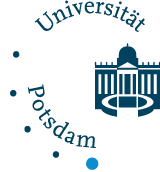
Our working group regularly supervises Master and Bachelor theses, and we are happy to collaborate on PhD and postdoc projects. In addition to fieldwork within Germany, we also offer international field work opportunities to master’s students. Below is a list of our current open thesis topics. At the end of the page, you will also find a template for submitting an independent thesis proposal.
When contacting us regarding a thesis topic, please let us know something about yourself. Specifically, please send us your CV including information on previous experience in R and statistics (or any other relevant skills such as fieldwork experience), your academic certificates, and a brief motivation letter explaining why you are interested in this specific topic. Information on your time frame would also be a good idea.
Please note that the language of the working group is English.
Theses with ecological data collection in Potsdam [MSc only]
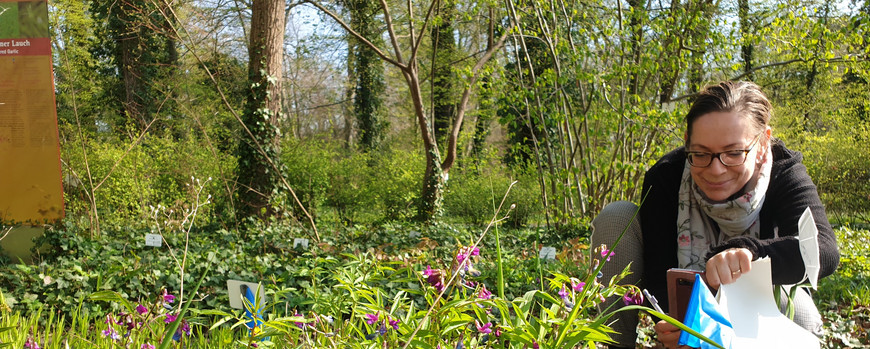
- Enhancing Botanical Garden Research with a Naturalness Index
Contact persons: Magnus Dobler ([email protected]), Prof. Dr. Anja Linstädter ( linstaedter u uni-potsdam p de )
Thesis_adv_FunctionalSpaceBotGarten
Theses with fieldwork abroad [MSc only]
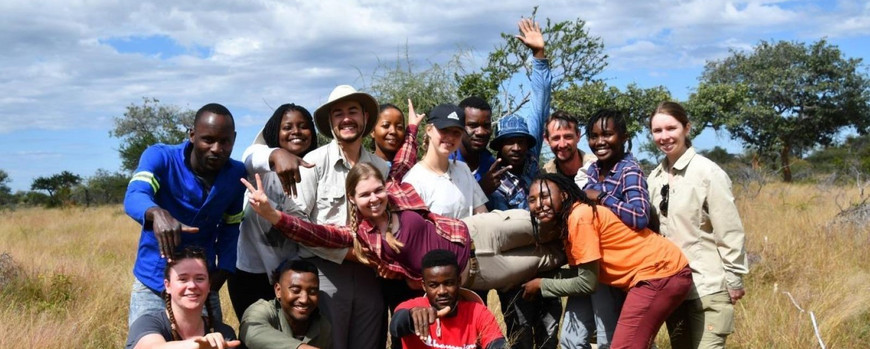
- Rangeland ecology in an African savanna
Contact persons: Liana Kindermann ([email protected]), Prof. Dr. Anja Linstädter ([email protected])
Msc_adv_RangelandZambia
Theses with ecological data collection in Germany [BSc and MSc]/ Abschlussarbeiten mit ökologischen Datenerhebungen in Deutschland [BSc und MSc]
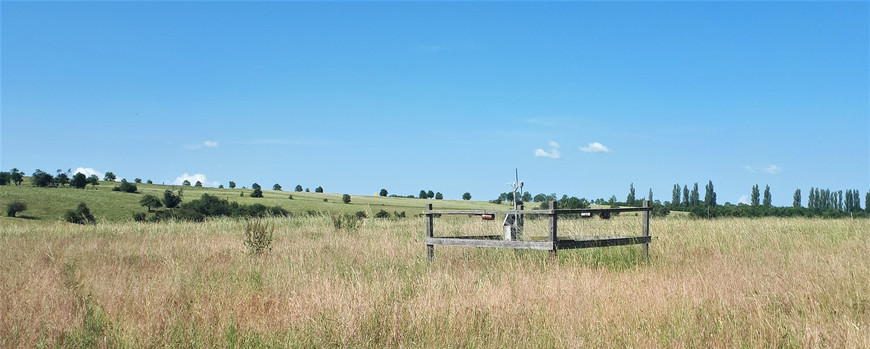
- Cooperative MSc/BSc on Plant & Insect Diverstiy at Linde research station
Contact Persons: Vera Kaunath ([email protected]), Liana Kindermann ([email protected])
MSc_Linde_Experiment_combined_April_2023
Relevant and Important Documents
Template - Research Plan Exposé ResearchPlanGuideline
Anmeldung der Masterverteidigung Anmeldung_Masterverteidigung
Informationen zur Anmeldung der Bachelorarbeit: Siehe Website des Prüfungsausschusses
Anleitung zum Verfassen einer Bachelor-Arbeit AnleitungBA_MAJJ
Ordnung für den Bachelorstudiengang Biowissenschaften und die Masterstudiengänge Ökologie, Evolution und Naturschutz sowie Biochemie und Molekularbiologie an der Universität Potsdam BBW und MOEN Ordnung von 2010
Richtlinie zur Sicherung guter wissenschaftlicher Praxis für Studierende an der Universität Potsdam (Plagiatsrichtlinie) Plagiat_Richtlinien

- FREE PROJECT TOPICS
- NCE PROJECT TOPICS
- OND PROJECT TOPICS
- HND PROJECT TOPICS
- BSC PROJECT TOPICS
- PGDE PROJECT TOPICS
- MBA PROJECT TOPICS
- MSC PROJECT TOPICS
- HIRE A WRITER FOR NCE
- HIRE A WRITER FOR OND
- HIRE A WRITER FOR HND
- HIRE A WRITER FOR BSC
- HIRE A WRITER FOR PGD
- HIRE A WRITER FOR MSC
- HIRE A WRITER FOR MBA
List of Botany Project Topics and Research Materials PDF Download
List of Botany Project Topics and Research Thesis Materials PDF and DOC File Download for Final Year Undergraduate and Postgraduate Students in the University and Polytechnic.
Approved Read-Made Botany Research Topics with Seminar Works for the Degree of National Diploma (ND), Higher National Diploma (HND), (BSC) Bachelor of Sciences, (MSC) Master of Science, and Ph.D. (Doctor of Philosophy).
Botany Thesis and Dissertation Topics, Proposal Topics, Presentations, Journals, Seminar Topics, and Research Papers, and Project Reports can also be gotten from this page.
All Project Materials for the Botany Department Listed on this Research Page have their Complete work Written from Chapters 1 to 5 which are: Title Page and the Case Study, Table Of Contents, Abstract, the Background of the Study, Statement of the Problem, Research Questions, Objectives of the Study, Research Hypothesis, Signification of the Study, the Scope of the Study, the Definition Of Terms, Organization of the Study, Literature Review (Theoretical Framework or Conceptual Framework), Research Methodology, Sources of Data Collection, the Population of the Study, Sampling and Sampling Distribution, Validation of Research Instrument, Method of Data Analysis, Data Analysis, Introduction, Summary, Conclusion, Recommendation, References/Bibliography/Citations and Questionnaire (Appendix).
The Topics below are for Nigerian Students, Ghanaian Students, and International Students. Countries like (Kenya, Liberia, Cameroon, United States, Uk, Canada, Germany, South Africa, Zambia, India e.t.c).
Do You Need Help? Call us or Whatsapp us @ (+234) 08060082010, 08107932631, 09075193621 or Via Email: [email protected]
Showing the single result
The effects of seed size and sowing depth on the germination of cowpea vigna unguiculata l. walp.
sold by Damian Chibueze

- Switch language
- Português do Brasil

Research Repository
Msc dissertations: plant and fungal taxonomy, diversity and conservation..
Dissertations written by Kew Science MSc students taking the Kew-QMUL MSc in Plant and Fungal Taxonomy, Diversity and Conservation.
Collection Details
Works (129)
| Title | Creator | Year Published | Date Added | Visibility | ||
|---|---|---|---|---|---|---|
| 2023 | 2023-11-02 | Public | ||||
| 2023 | 2023-11-02 | Public | ||||
| 2023 | 2023-11-02 | Public | ||||
| 2023 | 2023-11-02 | Public | ||||
| 2023 | 2023-11-02 | Public | ||||
| 2023 | 2023-11-02 | Public | ||||
| 2023 | 2023-11-02 | Public | ||||
| 2023 | 2023-11-02 | Public | ||||
| 2023 | 2023-11-01 | Public | ||||
| 2023 | 2023-11-01 | Public |
- « Previous
- Next »
- Top Colleges
- Top Courses
- Entrance Exams
- Admission 2024
- Study Abroad
- Study in Canada
- Study in UK
- Study in USA
- Study in Australia
- Study in Germany
- IELTS Material
- Scholarships
- Sarkari Exam
- Visual Stories
- College Compare
- Write a review
- Login/ Register
- Login / Register
M.Sc Botany Syllabus and Subjects

The M.Sc Botany syllabus provides a comprehensive understanding of plant science and biology . The M.Sc Botany course spans two years , divided into four semesters , covering core, elective, and practical subjects. Graduates can pursue careers as Research Assistants, Ecologists, Environmentalists, and more.
Table of Contents
- M.Sc Botany First year Syllabus
- M.Sc Botany Second year Syllabus
- M.Sc Botany Subjects in Detail
- M.Sc Botany Course Structure
Semester Wise MSc Botany Syllabus
The MSc Botany syllabus aims to equip candidates with knowledge on various topics in botany, including Phycology, Plant Morphology and Anatomy, Taxonomy of Angiosperms, Mycology, and more. Check out the table below to see the breakdown of the syllabus for each semester of the program.
M.Sc Botany 1st Year Syllabus
In the table given below are MSc Botany 1st sem syllabus and MSc Botany 2nd sem syllabus:
|
|
|
| Phycology | Plant Morphology and Anatomy |
| Mycology | Taxonomy of Angiosperms |
| Bryology and Pteridology | Reproductive Biology, Morphogenesis and Tissue culture |
| Gymnosperm and Palaeobotany | Cell and Molecular Biology |
MSc Botany First year Practicals
In the list given below are the practical subjecs offered in 1st year of M.Sc Botany syllabus:
- Plant Morphology and Anatomy
- Reproductive Biology, Morphogenesis and Tissue culture
MSc Botany 2nd Year Syllabus
In the table given below are 2nd year MSc Botany syllabus:
|
|
|
| Plant Physiology and Biochemistry | Plant Resource, Utilization and Conservation |
| Plant Biochemistry and Biochemical Techniques | Plant Biotechnology, Bioinformatics and IPR |
| Plant Biotechnology | Plant Molecular Biology and Molecular Techniques |
| Cytogenetics, Plant Breeding and Biostatistics | Dissertation |
MSc Botany Second year Practicals
In the list given below are the practical subjecs offered in 2nd year od MSc Botany syllabus:
- Plant Molecular Biology and Molecular Techniques
- Plant Physiology
- Plant Biochemistry and Biochemical Techniques
- Cytogenetics, Plant Breeding and Biostatistics
MSc Botany Subjects
MSc Botany subjects covers a range of subjects including Microbiology, Phycology, Cell Biology, Genetics and Genomics, Plant Physiology, Biochemistry, and Bioinformatics. These topics are essential for postgraduates to gain both practical and theoretical knowledge. The MSc Botany syllabus is divided into three parts: core, elective, and practicals , as listed below.
MSc Botany Core Subjects:
In the list given below are the core subjects of M.Sc Botany syllabus:
- Microbiology
- Cell Biology
- Genetics and Genomics
- Biochemistry
- Bioinformatics
MSc Botany Elective Subjects:
In the list given below are the elective subjects of MSc Botany syllabus:
- Forest Ecology
- Plant Pathology
- Biology and diversity of Pteridophyte
- Advanced Plant Physiology
- Ecology and Environment
- Palaeobotany
MSc Botany Lab Subjects:
In the list given below are the lab subjects of M.Sc Botany syllabus:
MSc Botany Subjects:
The MSc syllabus Botany has a list of subjects that cover various topics, which will be listed in the table given below:
| Phycology and Limnology | Introduction to Limnology, Properties of water, Lake ontogeny, morphometry, Physical factors: Light Temperature, Heat, and Stratification. |
| Bryology and Pteridology | General introduction including broad outline of classification and evolutionary trends, Anthocerotophyta: distribution, General Introduction of pteridophytes, their peculiar features and similarities and dissimilarities with bryophytes and gymnosperms. |
| Reproductive biology, Morphogenesis and Tissue culture | Introduction to life history of angiosperms, brief history of plant embryology; Anther: Structure and development wall layers and their role; Microsporogenesis; Ovule: Ontogeny, structure, integuments and nucellus specialized structures, megasporogenesis. |
| Plant Physiology | Plant water relations, Nitrogen metabolism, respiration and lipid metabolism, Photochemistry and photosynthesis. |
MSc Botany Course Structure
The M.Sc Botany syllabus is structured into subjects, projects, research, and seminars. The course has been divided into four semesters, the first three have practicals and theories, but the fourth-semester has research dissertation submission and elective subjects and their practicals. The list below highlights the course structure:
- IV Semesters
- Core subjects
- Practical and Laboratory
- Research Dissertation Work
M.Sc in Botany Teaching Methodology and Techniques
The M.Sc Botany syllabus incorporates various teaching methods and techniques to aid students in comprehending the wide range of topics covered in their classes. The Botany MSc syllabus employs several teaching methodologies and strategies, including:
- Practical & Laboratory sessions
- The emphasis of Practical Learning
- Experimentation
- Guest Lectures, Seminars, and Workshop
- Group Assignment and Discussion
- Learning through Industrial Visit
- Research & Development
MSc Botany Projects
The MSc Botany syllabus incorporates projects as significant undertakings in the final year. It carries many credit points to qualify for the course, pursue higher studies, or land a better job opportunity. The following are some of the MSc Botany project ideas:
- Combating the global food crisis: diazotroph bacteria as a cereal crop growth promoter
- The lifespan of a genetically engineered tomato
- Environmentally friendly method to suppress weeds
- Investigating seed tolerance for freezing temperatures
M.Sc Botany Reference Books
The guidebooks for the M.Sc Botany syllabus provide candidates with a comprehensive understanding of the various topics covered in their classes. Some of the top-rated books for M.Sc in Botany include:
| Books | Authors |
| Concise Encyclopedia of Plant Pathology | P. Vidhyasekaran |
| A Dictionary of Ecology, Evolution, and Systematics | R. J. Lincoln; G. A. Boxshall; P. F. Clark |
| Chemical Microbiology | Rose |
| Chromatography: Concepts and Contrasts | James Miller, John Wiley, and Sons |
| Encyclopedia of Plant and Crop Science | Robert M. Goodman (Editor) |
Top M.Sc Botany Colleges

Varanasi,Uttar Pradesh

Calcutta University
Kolkata,West Bengal
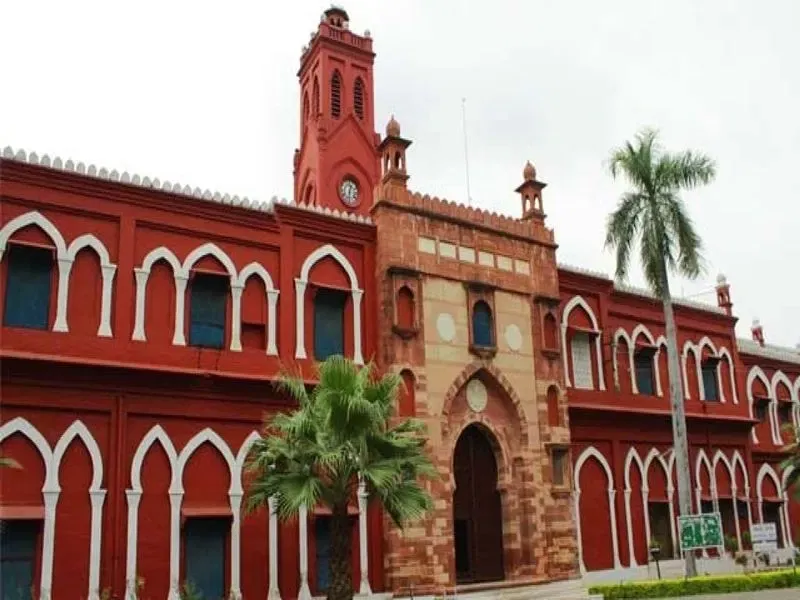
Aligarh,Uttar Pradesh

Delhi University (DU)
Delhi,Delhi NCR
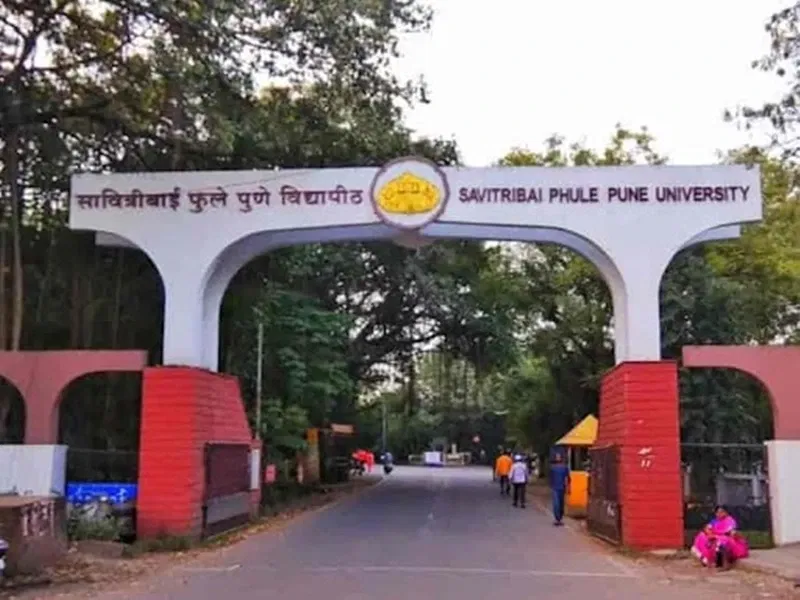
UniPune (SPPU)
Pune,Maharashtra
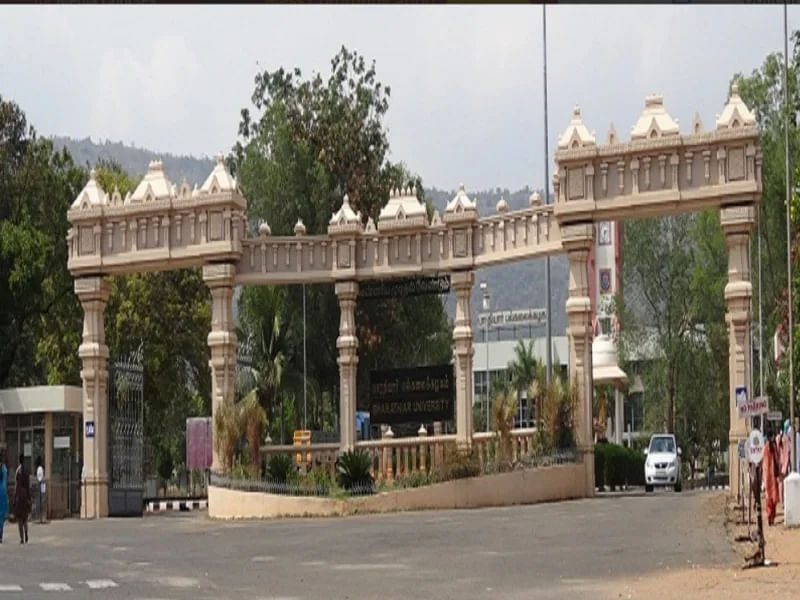
Bharathiar University
Coimbatore,Tamil Nadu

Mysore University
Mysore,Karnataka
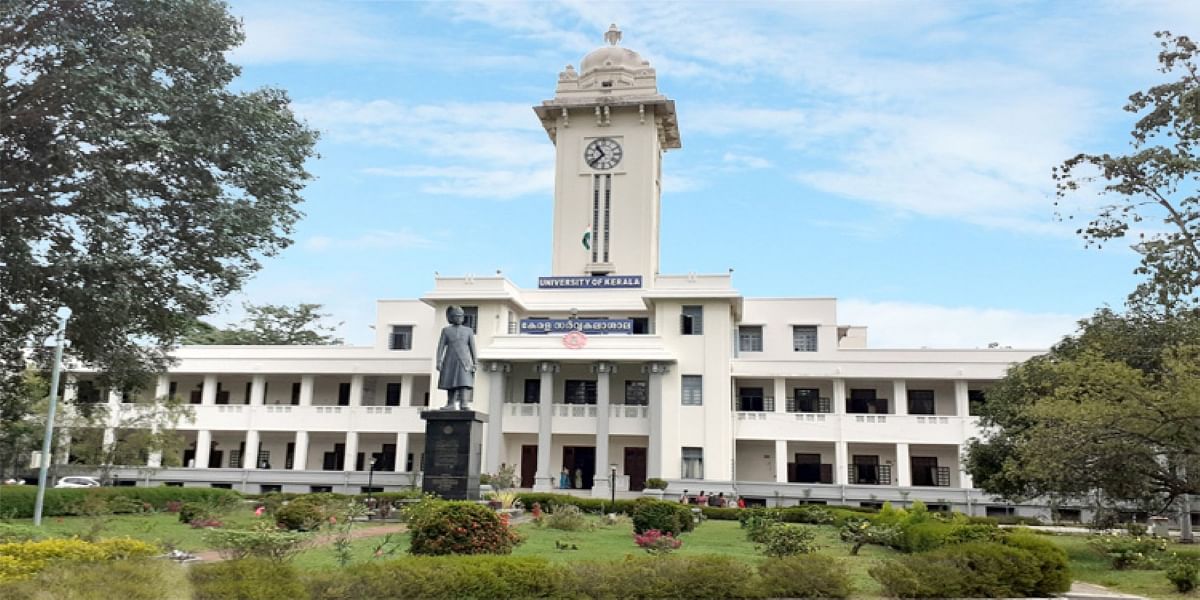
Kerala University
Thiruvananthapuram,Kerala
Top Science Entrance Exams

- Eligibility Criteria

Result Date: Mar 22, 2024

M.Sc Botany Fee Structure
Faqs on m.sc botany syllabus and subjects.
Q: Does MSc botany have scope?
A: Yes, there are many job opportunities in public health service, agriculture department, forest service, departments of conservation, and land management.
Q: How many semesters are there in MSc botany?
A: There are four semesters in MSc Botany.
Q: In which subject I can do MSc after BSc in botany?
A: After completing a BSc in Botany, one can typically pursue an MSc in Botany. However, there are also options to consider, such as MSc-integrated PhD courses for biological sciences.
Q: How many subjects are there in M.Sc botany?
A: MSc Botany consists about 10 to 15 subjects which include core and electives. It can vary based on universities choice.

- Browse Works
- Natural & Applied Sciences
Botany Research Papers/Topics
Evaluating the surface functional groups on banana leaf petioles and the resultant biochar for potential adsorbance.
Abstract The presence of surface functional groups is key to the performance of an adsorbent material. The aim of this study was to evaluate the presence of functional groups on banana leaf petiole and on biochar made from banana leaf petiole. These functional groups assist in determining the potential of the material as an adsorbent for pollutants and heavy metals in waste water. Banana leaf petioles were collected from a single plantation and analyzed using the Fourier transform infrared s...
Phenotypic Diversity of Doum Palm (Hyphaene compressa), a Semi-Domesticated Palm in the Arid and Semi-Arid Regions of Kenya
Abstract Hyphaene compressa is an economically important palm in Africa. Despite its significant role in the livelihoods of rural communities, the diversity of doum palm is poorly documented and studied. In addition, it has no model descriptor that can aid such studies. Ninety H. compressa accessions collected from Northern, Eastern, and Coastal regions of Kenya were examined to determine the morphological variability of the vegetative and fruit traits of H. compressa and to identify its mor...
Climbing Up the Hills: Expansion of Agriculture around the Ruma National Park, Kenya
Abstract/Overview A major factor driving changes in land use and land cover (LULC) is the human population growth associated with an expanded agricultural production. In the Lambwe valley in Homabay County, Kenya, the most important reason for accelerated population growth in the last decades was the control of the tsetse fly, the biological vector of trypanosomiasis. The goal of our study is to quantify the changes of LULC in the Lambwe valley in the last 30 years, giving special attenti...
Assessment of Four Commercial Watermelon Cultivars and one Local Landrace for Their Response to Naturally Occurring Diseases Pests and Non-Pathogenic Disorders in Sub-Humid Tropical Condition
Abstract Four commercial watermelon cultivars available in Kenya and one local landrace were evaluated for their susceptibility/resistance to naturally occurring diseases, pests and non-pathogenic disorders. The accessions included three most common commercial watermelon cultivars in Kenya namely ‘Sugarbaby’, ‘Crimson Sweet’ and ‘Charleston Gray’; one newly introduced cultivar from United States namely ‘Yellow Crimson’; and one local landrace (GBK-043014) from Kakamega distri...
Molecular Diversity of a Seemingly Altitude Restricted Ustilago kamerunensis Isolates in Kenya: A Pathogen of Napier Grass
Abstract The Central region of Kenya which is the second largest market oriented dairy zone, faces a threat in milk production. The challenge is a disease known as the napier head smut caused by Ustilago kamerunensis. This fungal microorganism is a facultative pathogen which has been reported to cause yield losses in napier grass (Pennisetum purpureum) ranging from 25% to 46% across the affected areas. Additionally, there are reports of the continual spread of the disease into neighbouring c...
Yeast Extract Peptone Based Co-cultivation Media Promotes Transient GUS Expression in Tropical Maize Genotypes
Abstract Background and Objective: Tropical maize is the most cultivated crop in sub-Saharan Africa and is a staple food to over 220 million people. This study, evaluated the competence of four tropical maize (Zea mays L.) inbred lines to callus induction and regeneration through somatic embryogenesis when co-cultivated on yeast extract peptone medium (YEP). Materials and Methods: Transient GUS assay was used to evaluate the competence of the genotypes to Agrobacterium-mediated transformatio...
Characterization, Enzymatic Activity, and Secondary Metabolites of Fungal Isolates from Lake Sonachi in Kenya
Abstract The soda lakes of Kenya provide an extreme environment where diverse groups of microorganisms thrive. They are characterized by great variation in temperature, halophillic and alkaliphilic- extreme conditions. Lake Sonachi has been the study site for this research. The study sort to isolate, characterize and identify fungi, screen for potential exo-enzymes and secondary metabolites production that may be of industrial application. Malt extract agar was used in the isolation of fungi...
Is leaf pubescence of Cape Proteaceae a xeromorphic or radiation-protective trait?
Abstract Although pubescence has traditionally been considered to be related to the water economy of plants, the results are ambivalent and vary between different species. We tested two contrasting hypotheses for the functional significance of leaf pubescence of Proteaceae species from the Cape Floristic Region. First, we hypothesised that pubescence is a xeromorphic trait that conserves water by increasing the boundary layer resistance to diffusion. Water loss was measured in two morphotype...
Molecular detection of uncultured cyanobacteria and aminotransferase domains for cyanotoxin production in sediments of different Kenyan lakes
Abstract PCR-based denaturing gradient gel electrophoresis (DGGE) analysis of 16S rRNA gene fragments was used to identify the cyanobacterial phylotypes in sediments and plankton of saline–alkaline and freshwater lakes of Kenya. The detection of the aminotransferase domain located on modules mcyE and ndaF using specific molecular markers confirmed the presence of potential toxin-producing cyanobacteria. The eight nucleotide sequences obtained from DGGE bands were placed in three divergent ...
Contribution of hot spring cyanobacteria to the mysterious deaths of Lesser Flamingos at Lake Bogoria, Kenya
Abstract Cyanobacterial mats at hot springs on the shore of the alkaline Lake Bogoria, Kenya, were investigated regarding species community and cyanobacterial toxin content. The hepatotoxins microcystin-LR, -RR, -LF and -YR, and the neurotoxin anatoxin-a were present. The mats were dominated by Phormidium terebriformis, Oscillatoria willei, Spirulina subsalsa and Synechococcus bigranulatus. The concentration of microcystins in mat samples, ranged from 221 to 845 microg microcystin-LR equival...
Mass developments of the cyanobacteria Anabaenopsis and Cyanospira (Nostocales) in the soda lakes of Kenya: ecological and systematic implications
Abstract The food web of the saline–alkaline lakes of East Africa is characterised by a unique interaction between the Lesser Flamingos as consumer birds and the cyanobacterium Arthrospira fusiformis as the primary producer. However, this interaction is disturbed frequently by alterations of the phytoplankton community. During the period 2001–2012, species of the cyanobacteria Anabaenopsis and Cyanospira were observed in four soda lakes of the African Rift Valley and compared to the enti...
Morphological characterization of Kenyan native wood ear mushroom [Auricularia auricula (L. ex Hook.) Underw.] and the effect of supplemented millet and sorghum grains in spawn production
Abstract Utilization of mushrooms collected from the wild requires adequate description of useful phenetic features and domestication protocols. This study investigated morphological characters and spawn production procedures of three Kenyan native strains of wood ear mushroom [Auricularia auricula (L. ex Hook.) Underw.]. Nine basidiocarps were selected from collections made in three forest reserves within Kakamega Forest in Western Kenya and morphologically characterized. Mycelia were raise...
Morphological Characterization of Some Wild and Cultivated Watermelon (Citrullus Sp.) Accessions in Kenya
Abstract Genetic diversity and relatedness were assessed among three most common commercial watermelon cultivars in Kenya; one newly introduced commercial cultivar from the U.S., one Kenyan landrace and one wild (Citrullus colocynthis) accession. The six accessions were grown in the field for two seasons under sub humid tropical conditions. Randomized Complete Block Design (RCBD) with three replications was used. Data was collected on morphological features of watermelon which include vine, ...
Isolation and characterization of actinobacteria from Lake Magadi, Kenya
Abstract Actinobacteria are ubiquitous and have been detected in terrestrial and aquatic ecosystems. Although, various studies have focused on the ecology of this phylum, data on the ecology of actinobacteria endemic to soda lakes are scanty. This study aimed to determine actinobacterial diversity in Lake Magadi. Four different sampling points were selected randomly within the lake to cover a broad range of sample diversity. Wet sediments and water samples were collected from each sampling p...
Metal status of Nairobi riverwaters and their bioaccumulation in Labeo cylindricus
Abstract This study focused on the analysis of metals in water and fish from Nairobi River. Water from Kikuyu, Kawangware, Chiromo, Eastleigh, Njiru and Fourteen Falls along the Nairobi River was analyzed for the presence of metals. Most of the metal levels in water were below the critical limit of World Health Organization and Kenya Bureau of Standards except for lead, chromium, iron and manganese. Isolated cases of mercury and aluminium pollution were recorded. Except for iron, sodium and ...
Botany is the scientific study of the physiology, structure, genetics, ecology, distribution, classification, and economic importance of plants. Botany is a branch of biology that deals with the study of plants, including their structure, properties, and biochemical processes Afribary curates list of academic papers and project topics in Botany. You can browse Botany project topics, Botany thesis topics, Botany dissertation topics, Botany seminar topics, Botany essays, Botany text books, lesson notes in Botany and all academic papers in Botany field.
Popular Papers/Topics
Anatomy and water purification potentials of seeds of moringa oleifera, the effects of cement dust on amaranthus viridis., anatomical analysis and seed-coat imposed dormancy in parkia biglobosa, pollen grains in reconstructing past climate, floristics and structure of fallow vegetation, evaluation of phytochemical, nutritional, and mineral compositions of some selected capsicum species fruit, a review on global conservation priority and the challenges of biodiversity hotspot, callus induction of local garlic cultivar (allium sativum l.), ecological utilization of the weed – tithonia diversifolia and sustainability of the paper industry in nigeria, evaluation of rhizobium and mycorrhiza interactions in sustainable maize(zea maysl.)and soyabean(glycine maxl.) production, the effect of smoke treatment on the germination on four species of mesembryanthemum :some preliminary observations, ethnobotanical study on wealth of homegardens in gosiling gewog of tsirang district, a study of the effects of nitrate, ammonium, and nitrate + ammonium nutrition on nitrogen assimilation in zeamays l., malaria: epidemiology and herbal treatment options in some selected areas of central region of ghana, plant traits and drought tolerance in the savanna: a kruger national park case study.
Privacy Policy | Refund Policy | Terms | Copyright | © 2024, Afribary Limited. All rights reserved.
Unable to find any suggestions for your query...
The Essex website uses cookies. By continuing to browse the site you are consenting to their use. Please visit our cookie policy to find out which cookies we use and why. View cookie policy.
MSc (by Dissertation) Plant Biology
.jpg?mh=512&mw=512&hash=279C27AD600E18D8076660770039D257)
- Ask a question
- Get a prospectus
Entry requirements
Fees and funding.
- What's next?
Research in our School of Life Sciences covers a wide spectrum of biology from genes to ecosystems, and this broad-based structure provides opportunities for developing novel ideas and inter-disciplinary projects. Our staff have expertise in photosynthesis, plant productivity, plant ecophysiology and cell signalling and can offer supervision of projects in these areas. We use a variety of approaches to identify key genes and processes that determine productivity in plants in constantly changing environmental conditions.
As a research student at Essex, you will work at the heart of our internationally acknowledged, well-resourced and well-connected research community. We offer world-class supervision and training opportunities, and encourage you to engage with other researchers, professionals, practitioners and research users, where possible, for example using the generous funding from Proficio to attend conferences and training courses.
A PhD and MPhil are also available. Both full- and part-time study can be supported, and you can start this course in either January, April or October.
- You will work within our Plant Productivity Group which has an international reputation for outstanding research.
- Our Group has an extensive network of national and international collaborations through projects funded by the BBSRC, Bill & Melinda Gates Foundation, EU, Leverhulme Trust, Innovate UK and industry.
- We have strong links with industry working on a number of collaborative projects with companies such as Bayer and Syngenta.

Our expert staff
Within our School of Life Sciences, you will be allocated a supervisor whose role it is to guide you through the different stages of your research degree. In some cases, you may be jointly supervised.
The support provided by your supervisor is a key feature of your research student experience and you will have regular one-to-one meetings to discuss progress on your research. Initially, your supervisor will help you develop your research topic and plan.
Twice a year, you will have a supervisory board meeting, which provides a more formal opportunity to discuss your progress and agree your plans for the next six months.
Your technical and intellectual development will be enhanced by becoming part of a Research Group, and participating in School Seminars.
Specialist facilities
Our School of Life Sciences is fully equipped to perform cutting edge plant physiology and phenotyping research using a combination of conventional and custom designed apparatus including:
A dedicated study room allows all our postgraduate research students to have access to a desk and a computer outside of the research laboratories. This provides a focal point for our postgraduates, facilitating reading and writing as well as good communication and a sense of community.
Your future
Many of our postgraduates continue their scientific research by taking up postdoctoral positions in the UK and overseas. Others go on to work with industry or governmental and non-governmental organisations. We support your career development by a mentoring scheme and employability events.
UK entry requirements
International & eu entry requirements.
We accept a wide range of qualifications from applicants studying in the EU and other countries. Get in touch with any questions you may have about the qualifications we accept. Remember to tell us about the qualifications you have already completed or are currently taking.
Sorry, the entry requirements for the country that you have selected are not available here. Please contact our Graduate Admissions team at [email protected] to request the entry requirements for this country.
English language requirements
Course structure.
A research degree doesn't have a taught structure, giving you the chance to investigate your chosen topic in real depth and reach a profound understanding. In communicating that understanding, through a thesis or other means, you have a rare opportunity to generate knowledge. A research degree allows you to develop new high-level skills, enhance your professional development and build new networks. It can open doors to many careers.
We understand that deciding where and what to study is a very important decision for you. We'll make all reasonable efforts to provide you with the courses, services and facilities as described on our website and in line with your contract with us. However, if we need to make material changes, for example due to significant disruption, we'll let our applicants and students know as soon as possible.
Components are the blocks of study that make up your course. A component may have a set module which you must study, or a number of modules from which you can choose.
Each component has a status and carries a certain number of credits towards your qualification.
| Status | What this means |
| | You must take the set module for this component and you must pass. No failure can be permitted. |
| | You can choose which module to study from the available options for this component but you must pass. No failure can be permitted. |
| | You must take the set module for this component. There may be limited opportunities to continue on the course/be eligible for the qualification if you fail. |
| | You can choose which module to study from the available options for this component. There may be limited opportunities to continue on the course/be eligible for the qualification if you fail. |
| | You can choose which module to study from the available options for this component. There may be limited opportunities to continue on the course/be eligible for the qualification if you fail. |
The modules that are available for you to choose for each component will depend on several factors, including which modules you have chosen for other components, which modules you have completed in previous years of your course, and which term the module is taught in.
Modules are the individual units of study for your course. Each module has its own set of learning outcomes and assessment criteria and also carries a certain number of credits.
In most cases you will study one module per component, but in some cases you may need to study more than one module. For example, a 30-credit component may comprise of either one 30-credit module, or two 15-credit modules, depending on the options available.
Modules may be taught at different times of the year and by a different department or school to the one your course is primarily based in. You can find this information from the module code . For example, the module code HR100-4-FY means:
| HR | 100 | 4 | FY |
|---|---|---|---|
| The department or school the module will be taught by. In this example, the module would be taught by the Department of History. | The module number. | The of the module. A standard undergraduate course will comprise of level 4, 5 and 6 modules - increasing as you progress through the course. A standard postgraduate taught course will comprise of level 7 modules. A postgraduate research degree is a level 8 qualification. | The term the module will be taught in. : Autumn term : Spring term : Summer term : Full year : Autumn and Spring terms Spring and Summer terms Autumn and Summer terms |
COMPONENT 01: COMPULSORY
This module is for PhD students who are completing the research portions of their thesis.
View Biological Science - Research on our Module Directory
The aim of undertaking your MSD within our School of Life Sciences is to train independent researchers who can critically assess other research work, and have a comprehensive knowledge of at least one area of biology.
An MSD involves a minimum of one year of full-time research or two years part time followed by production of a dissertation. Students enrolled on an MSD programme can upgrade to an MPhil or PhD subject to satisfactory progress.
Dissertation
Within our School of Life Sciences, you must attend two formal supervisory board meetings each year where you submit literature reviews and research reports to the Board members prior to the meeting. At these meetings, such documents are discussed with you and your progress is assessed.
Your MSD thesis is generally completed within one to two years and has a maximum length of 30,000 words.
Home/UK fee
£4,786 per year
International fee
£21,500 per year
Fees will increase for each academic year of study.
Masters fees and funding information
Research (e.g. PhD) fees and funding information
What's next
We hold Open Days for all our applicants throughout the year. Our Colchester Campus events are a great way to find out more about studying at Essex, and give you the chance to:
- tour our campus and accommodation
- find out answers to your questions about our courses, graduate employability, student support and more
- talk to our Fees and Funding team about scholarship opportunities
- meet our students and staff
If the dates of our organised events aren’t suitable for you, feel free to get in touch by emailing [email protected] and we’ll arrange an individual campus tour for you.
2024 Open Days (Colchester Campus)
- Saturday 21 September 2024 - September Open Day
- Saturday 26 October 2024 - October Open Day

You can apply for this postgraduate course online . Before you apply, please check our information about necessary documents that we'll ask you to provide as part of your application.
We encourage you to make a preliminary enquiry directly to a potential supervisor or the Graduate Administrator within your chosen Department or School. We encourage the consideration of a brief research proposal prior to the submission of a full application.
We aim to respond to applications within four weeks. If we are able to offer you a place, you will be contacted via email.
For information on our deadline to apply for this course, please see our ‘ how to apply ' information.

Visit Colchester Campus
Set within 200 acres of award-winning parkland - Wivenhoe Park and located two miles from the historic city centre of Colchester – England's oldest recorded development. Our Colchester Campus is also easily reached from London and Stansted Airport in under one hour.

Virtual tours
If you live too far away to come to Essex (or have a busy lifestyle), no problem. Our 360 degree virtual tour allows you to explore the Colchester Campus from the comfort of your home. Check out our accommodation options, facilities and social spaces.
At Essex we pride ourselves on being a welcoming and inclusive student community. We offer a wide range of support to individuals and groups of student members who may have specific requirements, interests or responsibilities.
The University makes every effort to ensure that this information on its programme specification is accurate and up-to-date. Exceptionally it can be necessary to make changes, for example to courses, facilities or fees. Examples of such reasons might include, but are not limited to: strikes, other industrial action, staff illness, severe weather, fire, civil commotion, riot, invasion, terrorist attack or threat of terrorist attack (whether declared or not), natural disaster, restrictions imposed by government or public authorities, epidemic or pandemic disease, failure of public utilities or transport systems or the withdrawal/reduction of funding. Changes to courses may for example consist of variations to the content and method of delivery of programmes, courses and other services, to discontinue programmes, courses and other services and to merge or combine programmes or courses. The University will endeavour to keep such changes to a minimum, and will also keep students informed appropriately by updating our programme specifications . The University would inform and engage with you if your course was to be discontinued, and would provide you with options, where appropriate, in line with our Compensation and Refund Policy.
The full Procedures, Rules and Regulations of the University governing how it operates are set out in the Charter, Statutes and Ordinances and in the University Regulations, Policy and Procedures.
Related courses
- Colchester Campus

Want to quiz us about your course? Got a question that just needs answering? Get in touch with us on live chat!

- Course Finder
- Undergraduate study
- Postgraduate study
- Short courses and CPD
- International students
- Study online
- Apprenticeships
- Summer Schools
- Student life
- Student accommodation
- Essex Sport
- Southend Campus
- Loughton Campus
- Careers and Employability
- Student support
- Research excellence
- Research showcase
- Media requests
- Research Excellence Framework (REF)
- Research institutes and centres
- Departments
- How to pay your fees
- General - [email protected]
- Undergraduate - [email protected]
- Postgraduate - [email protected]
- +44 (0) 1206 873333
- University of Essex
- Wivenhoe Park
- Colchester CO4 3SQ

- Accessibility
- Our privacy statements
- Our transparency return
- Modern slavery and human trafficking

- Master of Science in Botany (MSc)
- Graduate School
- Prospective Students
- Graduate Degree Programs
Go to programs search
The Botany Department is one of the largest and strongest plant-focused departments in North America with roots extending back to the founding of UBC in 1915. Our departmental community of more than 260 consists of 40 full-time faculty members, several part-time faculty or associates, about 100 graduate students, numerous post-doctoral fellows and research associates, laboratory technicians, and a support staff of secretarial, equipment, herbarium, stores, workshop and greenhouse personnel. Our graduate students are expected to make influential contributions to scientific discovery and discourse, engage in formal and informal teaching and mentoring, and progress to careers in academia, industry, government and non-governmental organizations. The Botany Grad Student Association forms an active group, organizing talks, study sessions, field trips and a variety of social activities. Recent Botany graduates have gone on to prestigious postdoctoral and teaching/research positions in Canada, the USA and abroad (England, China, Taiwan, South Korea, Germany, France, Sweden).
For specific program requirements, please refer to the departmental program website
What makes the program unique?
The Botany Department offers unparalleled opportunities for research and teaching/learning with faculty members at the leading-edge of their disciplines. Specializations within Botany range from molecular genetics to climate change impacts on marine and terrestrial ecosystems. Collaborations between Botany faculty and other departments including Zoology, Chemistry, Forestry, Earth Ocean and Atmospheric Sciences, and the Michael Smith Laboratories, bring a rich array of potential topic areas for research to Botany graduate students. State-of-the-art facilities for bio-imaging, as well as a world-class herbarium and access to living collections in the Canadian Centre for the Culture of Microorganisms, add to the overall uniqueness of the Botany program.
Quick Facts
Program enquiries, admission information & requirements, 1) check eligibility, minimum academic requirements.
The Faculty of Graduate and Postdoctoral Studies establishes the minimum admission requirements common to all applicants, usually a minimum overall average in the B+ range (76% at UBC). The graduate program that you are applying to may have additional requirements. Please review the specific requirements for applicants with credentials from institutions in:
- Canada or the United States
- International countries other than the United States
Each program may set higher academic minimum requirements. Please review the program website carefully to understand the program requirements. Meeting the minimum requirements does not guarantee admission as it is a competitive process.
English Language Test
Applicants from a university outside Canada in which English is not the primary language of instruction must provide results of an English language proficiency examination as part of their application. Tests must have been taken within the last 24 months at the time of submission of your application.
Minimum requirements for the two most common English language proficiency tests to apply to this program are listed below:
TOEFL: Test of English as a Foreign Language - internet-based
Overall score requirement : 92
IELTS: International English Language Testing System
Overall score requirement : 6.5
Other Test Scores
Some programs require additional test scores such as the Graduate Record Examination (GRE) or the Graduate Management Test (GMAT). The requirements for this program are:
The GRE is not required.
2) Meet Deadlines
January 2025 intake, application open date, canadian applicants, international applicants, september 2025 intake, deadline explanations.
Deadline to submit online application. No changes can be made to the application after submission.
Deadline to upload scans of official transcripts through the applicant portal in support of a submitted application. Information for accessing the applicant portal will be provided after submitting an online application for admission.
Deadline for the referees identified in the application for admission to submit references. See Letters of Reference for more information.
3) Prepare Application
Transcripts.
All applicants have to submit transcripts from all past post-secondary study. Document submission requirements depend on whether your institution of study is within Canada or outside of Canada.
Letters of Reference
A minimum of three references are required for application to graduate programs at UBC. References should be requested from individuals who are prepared to provide a report on your academic ability and qualifications.
Statement of Interest
Many programs require a statement of interest , sometimes called a "statement of intent", "description of research interests" or something similar.
- Supervision
Students in research-based programs usually require a faculty member to function as their thesis supervisor. Please follow the instructions provided by each program whether applicants should contact faculty members.
Instructions regarding thesis supervisor contact for Master of Science in Botany (MSc)
Citizenship verification.
Permanent Residents of Canada must provide a clear photocopy of both sides of the Permanent Resident card.
4) Apply Online
All applicants must complete an online application form and pay the application fee to be considered for admission to UBC.
Tuition & Financial Support
| Fees | Canadian Citizen / Permanent Resident / Refugee / Diplomat | International |
|---|---|---|
| $114.00 | $168.25 | |
| Tuition * | ||
| Installments per year | 3 | 3 |
| Tuition | $1,838.57 | $3,230.06 |
| Tuition (plus annual increase, usually 2%-5%) | $5,515.71 | $9,690.18 |
| Int. Tuition Award (ITA) per year ( ) | $3,200.00 (-) | |
| Other Fees and Costs | ||
| (yearly) | $1,116.60 (approx.) | |
| Estimate your with our interactive tool in order to start developing a financial plan for your graduate studies. | ||
Financial Support
Applicants to UBC have access to a variety of funding options, including merit-based (i.e. based on your academic performance) and need-based (i.e. based on your financial situation) opportunities.
Program Funding Packages
All full-time students who begin a UBC-Vancouver MSc program in Botany starting September 2022 will be provided with a funding package of at least $31,092 for each of the first two years of their MSc. The funding package may consist of any combination of internal or external awards, teaching-related work, research assistantships, and graduate academic assistantships. Please note that all financial support is subject to satisfactory performance and annual review.
For further information, visit:
https://botany.ubc.ca/graduates/financial-support/
Scholarships & awards (merit-based funding)
All applicants are encouraged to review the awards listing to identify potential opportunities to fund their graduate education. The database lists merit-based scholarships and awards and allows for filtering by various criteria, such as domestic vs. international or degree level.
Graduate Research Assistantships (GRA)
Many professors are able to provide Research Assistantships (GRA) from their research grants to support full-time graduate students studying under their supervision. The duties constitute part of the student's graduate degree requirements. A Graduate Research Assistantship is considered a form of fellowship for a period of graduate study and is therefore not covered by a collective agreement. Stipends vary widely, and are dependent on the field of study and the type of research grant from which the assistantship is being funded.
Graduate Teaching Assistantships (GTA)
Graduate programs may have Teaching Assistantships available for registered full-time graduate students. Full teaching assistantships involve 12 hours work per week in preparation, lecturing, or laboratory instruction although many graduate programs offer partial TA appointments at less than 12 hours per week. Teaching assistantship rates are set by collective bargaining between the University and the Teaching Assistants' Union .
Graduate Academic Assistantships (GAA)
Academic Assistantships are employment opportunities to perform work that is relevant to the university or to an individual faculty member, but not to support the student’s graduate research and thesis. Wages are considered regular earnings and when paid monthly, include vacation pay.
Financial aid (need-based funding)
Canadian and US applicants may qualify for governmental loans to finance their studies. Please review eligibility and types of loans .
All students may be able to access private sector or bank loans.
Foreign government scholarships
Many foreign governments provide support to their citizens in pursuing education abroad. International applicants should check the various governmental resources in their home country, such as the Department of Education, for available scholarships.
Working while studying
The possibility to pursue work to supplement income may depend on the demands the program has on students. It should be carefully weighed if work leads to prolonged program durations or whether work placements can be meaningfully embedded into a program.
International students enrolled as full-time students with a valid study permit can work on campus for unlimited hours and work off-campus for no more than 20 hours a week.
A good starting point to explore student jobs is the UBC Work Learn program or a Co-Op placement .
Tax credits and RRSP withdrawals
Students with taxable income in Canada may be able to claim federal or provincial tax credits.
Canadian residents with RRSP accounts may be able to use the Lifelong Learning Plan (LLP) which allows students to withdraw amounts from their registered retirement savings plan (RRSPs) to finance full-time training or education for themselves or their partner.
Please review Filing taxes in Canada on the student services website for more information.
Cost Estimator
Applicants have access to the cost estimator to develop a financial plan that takes into account various income sources and expenses.
Career Options
Botany is the branch of biology that involves the study of the structure, evolution, properties and biochemical processes of all forms of plant life, including algae, fungi, ferns and trees. Also included within its scope are plant classification and the study of plant diseases, as well as the interactions of plants with people and the environment. A degree in Botany is well-suited to meet the challenges posed by biodiversity loss and impacts of climate change. Positions for people with botany backgrounds are usually in educational institutions, government and environmental organizations, and in the biotechnology industry including companies seeking new drugs and medicines, and useful genes for improvement of crop plants.
Enrolment, Duration & Other Stats
These statistics show data for the Master of Science in Botany (MSc). Data are separated for each degree program combination. You may view data for other degree options in the respective program profile.
ENROLMENT DATA
| 2023 | 2022 | 2021 | 2020 | 2019 | |
|---|---|---|---|---|---|
| Applications | 41 | 25 | 44 | 32 | 26 |
| Offers | 16 | 7 | 16 | 11 | 9 |
| New Registrations | 11 | 5 | 11 | 10 | 8 |
| Total Enrolment | 25 | 23 | 31 | 30 | 24 |
Completion Rates & Times
- Research Supervisors
Advice and insights from UBC Faculty on reaching out to supervisors
These videos contain some general advice from faculty across UBC on finding and reaching out to a supervisor. They are not program specific.

This list shows faculty members with full supervisory privileges who are affiliated with this program. It is not a comprehensive list of all potential supervisors as faculty from other programs or faculty members without full supervisory privileges can request approvals to supervise graduate students in this program.
- Adams, Keith (Molecular evolution, genome evolution, and gene expression)
- Angert, Amy (Plant biology; Zoology; Biodiversity and Biocomplexity; biogeography; biological responses to climate change; Conservation Biology; Ecological and Ecophysiological Processes; evolutionary ecology; population biology)
- Bohlmann, Joerg (plant biochemistry, forestry genomics, forest health, conifers, poplar, bark beetle, mountain pine beetle, natural products, secondary metabolites, terpenes, floral scent, grapevine, Conifer genomics Forest health genomics Mountain pine beetle, fungus, pine interactions and genomics Chemical ecology of conifer, insect interactions)
- Cronk, Quentin Charles (Comparative genomics, molecular developmental biology and evolutionary biology to study plant form)
- Davies, Jonathan (Phylogenetics & Biodiversity. Development and application of phylogenetic methods in ecology and conservation biology)
- Fast, Naomi (Genomics, single-celled organisms)
- Gaynor, Kaitlyn (behavioral responses of animals to human presence; effects of anthropogenic disturbance on predator-prey and other species interactions; socio-ecological dynamics of conservation and coexistence)
- Graham, Sean (Plant phylogenetics; Plant systematics; Plant evolution; Organelles; Phylogenomics; Land plants; Mycoheterotrophs)
- Jetter, Reinhard (Chemical sciences; Plant biology; Analytical Chemistry; Biological Chemistry; Molecular Genetics; Plant Biochemistry; Plant Ecophysiology)
- Keeling, Patrick John (Molecular evolution and cell biology of eukaryotes)
- Leander, Brian (Plant biology; Zoology; Comparative organismal biology; Evolutionary morphology; Evolutionary protistology; Marine biodiversity; Marine invertebrate zoology; Phylogenetic biology; Species discovery)
- Li, Xin (Molecules in plants, plants defence against pathogen infection, plant genes)
- Mansfield, Shawn (plant metabolism, cellulose biosynthesis, lignin biosynthesis, wood formation, wood quality, cell wall biochemistry, tree biotechnology, transgenics, Tree biotechnology)
- Martone, Patrick (Plant biology; Protist; Plants; Physiology; Taxonomy and Systematics; Ecology and Quality of the Environment; Evolution and Phylogenesis; Biomaterials; Solid Mechanics; Fluid mechanics; biomechanics; Ecology; evolution; Intertidal Zone; Macroalgae; Phycology)
- Michaletz, Sean (Plant physiological ecology; Plant biology; Surface processes; Natural hazards; Ecophysiology; Ecosystem ecology; climate change; macroecology; Geophysics; Scaling; Fire)
- Moore, Alex (Community ecology (except invasive species ecology); Plant-animal interactions; Global change biology; Ecological restoration (except bioremediation); Applied community and ecosystem ecology; impact of predator-prey interactions on the health and functioning of coastal wetland ecosystems; role of cultural values and knowledge in ecosystem restoration conservation; Global change impacts on coastal environments)
- Parfrey, Laura (Microbial ecology, microbial diversity, microbiome, protists )
- Rieseberg, Loren (Bioinformatics; Genomics; Plant biology; adaptation; crops; invasive plants; plant evolutionary biology; speciation; weeds)
- Rosado Rey, Abel (Plasma membrane repair mechanisms in plants)
- Samuels, Anne Lacey (Plant biology; plant cell biology; plant cell walls)
- Song, Liang (Plant genomics; Environmental stresses; Seed development; Gene Expression)
- Suttle, Curtis (Bioinformatics; Fisheries sciences; Immunology; Microbiology; Oceanography; Plant biology; Biological Oceanography; Environmental Virology; Marine Environment; Marine Microbiology; Microbial Diversity; Phage; Viral Discovery; Viruses)
- Todesco, Marco (Plant biology; Quantitative genetics (including disease and trait mapping genetics); Biological adaptation; Developmental genetics (including sex determination); Genomics; Population, ecological and evolutionary genetics; Paleogenomics; Genetics engineering; Plant-animal interactions; Genetic and molecular basis of adaptation; Plant genomics; Chromosomal structural variation; Crop improvement and bioengineering; Wild sunflowers ecology and evolution; Cannabis diversity and domestication)
- Tortell, Philippe (Biological / Chemical Oceanography, Climate-active Trace Gases, Primary Productvity, Polar Marine Ecosystems)
- Tseng, Michelle (Population ecology; Community ecology (except invasive species ecology); Evolutionary impacts of climate change; Biological adaptation; Ecological impacts of climate change; Insect & plankton ecology; Community and evolutionary ecology; Community responses to warming; Urban biodiversity)
Sample Thesis Submissions
- Genetic dissection of sclerotial formation in Sclerotinia sclerotiorum
- Regulatory mechanism of AtSDR4L/DIG1 transcriptional co-repressors
- Generating a null background for the expression of microtubule organization 1 (MOR1) translational reporter constructs by CRISPR/Cas9 and recombineering technologies
- Simulated invasion suggests rapid evolution of biotic resistance to a range-shifting competitor
- Genome reassembly and meiotic recombination in Chlamydomonas reinhardtii
- Characterization of a novel family of repressors affecting many processes during Arabidopsis thaliana seed development
- Taxonomy and phylogeny of the leaf–inhabiting sooty molds in family Metacapnodiaceae
- The cost of co-occurrence : reproductive interference between close relatives in an open-pollinated common garden
- Characterization of Chlamydomonas reinhardtii ammonium insensitive mutants
- Dissecting the roles of monolignol supply and oxidative enzymes in Arabidopsis thaliana lignification
- Identification and characterization of suppressors of anp2/anp3
- A biochemical and microscopic analysis of adhesion in the kelp Alaria marginata
- De novo assembly of a zoanthid transcriptome for the study of corallicolids
- The role of microsites and life stage in determining translocation success of a globally vulnerable plant variety, Oxytropis campestris var.davisii
- Investigating Golgi retrograde dynamics through the xylan synthase complex in Arabidopsis thaliana
Related Programs
Same specialization.
- Doctor of Philosophy in Botany (PhD)
Further Information
Specialization.
Research in Botany extends from genomics, molecular genetics, biochemistry and physiology of plants and eukaryotic microorganisms (e.g., fungi and protists) through to cytology and development to systematics, ecology, and phytogeography. The broad areas of research possible within the program are cell biology and biochemistry; genomics and genetics, plant molecular biology; plant and algal physiology; terrestrial and marine ecology; biosystematics and evolution; development and ultrastructure; protistology; and mycology.
UBC Calendar
Program website, faculty overview, academic unit, program identifier, classification, social media channels, supervisor search.
Departments/Programs may update graduate degree program details through the Faculty & Staff portal. To update contact details for application inquiries, please use this form .

Considering Vancouver as your next home?
This city won’t disappoint. It has it all: sea, parks, mountains, beaches and all four seasons, including beautiful summers and mild, wet winters with snow.
- Why Grad School at UBC?
- Application & Admission
- Info Sessions
- Research Projects
- Indigenous Students
- International Students
- Tuition, Fees & Cost of Living
- Newly Admitted
- Student Status & Classification
- Student Responsibilities
- Managing your Program
- Health, Wellbeing and Safety
- Professional Development
- Dissertation & Thesis Preparation
- Final Doctoral Exam
- Final Dissertation & Thesis Submission
- Life in Vancouver
- Vancouver Campus
- Graduate Student Spaces
- Graduate Life Centre
- Life as a Grad Student
- Graduate Student Ambassadors
- Meet our Students
- Award Opportunities
- Award Guidelines
- Minimum Funding Policy for PhD Students
- Killam Awards & Fellowships
- Dean's Message
- Leadership Team
- Strategic Plan & Priorities
- Vision & Mission
- Equity, Diversity & Inclusion
- Initiatives, Plans & Reports
- Graduate Education Analysis & Research
- Media Enquiries
- Newsletters
- Giving to Graduate Studies
Strategic Priorities
- Strategic Plan 2019-2024
- Improving Student Funding
- Promoting Excellence in Graduate Programs
- Enhancing Graduate Supervision
- Advancing Indigenous Inclusion
- Supporting Student Development and Success
- Reimagining Graduate Education
- Enriching the Student Experience
Initiatives
- Public Scholars Initiative
- 3 Minute Thesis (3MT)
- PhD Career Outcomes

BSc and MSc Thesis Subjects of the Bioinformatics Group
On this page you can find an overview of the BSc and MSc thesis topics that are offered by our group. The procedure to find the right thesis project for you is described below.
MSc thesis: In the Bioinformatics group, we offer a wide range of MSc thesis projects, from applied bioinformatics to computational method development. Here is a list of available MSc thesis projects . Besides the fact that these topics can be pursued for a MSc thesis, they can also be pursued as part of a Research Practice .
BSc thesis: As a BSc student you will work as an apprentice alongside one of the PhD students or postdocs in the group. You will work on your own research project, closely guided by your supervisor. You will be expected to work with several tools and/or databases, be creative and potentially overcome technical challenges. Below you will find short descriptions of the research projects of our PhDs and Postdocs. In addition you can take a look at the list of MSc thesis projects above.
Procedure for WUR students:
- Request an intake meeting with one of our thesis coordinators by filling out the MSc intake form or BSc intake form and sending it to [email protected]
- Contact project supervisors to discuss specific projects that fit your background and interest
- Upon a match, take care of the required thesis administration together with your supervisor(s) and enroll in the thesis BrightSpace site to find more information on a thesis in the Bioinformatics group
Procedure for non-WUR students or students in other non-standard situations: We have limited space for interns from other institutes. If you are interested, please email our thesis coordinators at [email protected]; please attach your CV and indicate what are your main research interests.
BSc thesis topics
Integrative omics for the discovery of biosynthetic pathways in plants, molecular function prediction of natural products, linking the metabolome and genome, linking metagenomics and metatranscriptomics to study the endophytic root microbiome, exploiting variation in lettuce and its wild relatives.
- People/Staff
Animal, Plant and Environmental Sciences
The MSc by dissertation is offered in a wide range of research areas that facilitates an understanding about how the world around us works and the role of different organisms on Earth.
This degree targets individuals interested in getting involved with research in the fields of conservation, ecology, biodiversity, global change, botany, zoology with a view of furthering their studies to achieve a PhD or with the view of going into a research and conservation focused career. The combination of these research fields facilitates a degree of understanding about how the world around us works and the role of different organisms on Earth.
Why study Animal, Plant and Environmental Sciences at Wits?
The Wits School of Animal, Plant, and Environmental Sciences is home to a number of world leaders in sustainability, savannah ecology, conservation, among other research areas. Our School includes a diverse, research active and passionate staff and post-graduate cohort working on a variety of projects ranging from animal behaviour to plant systematics and evolution to ecology and aquatic ecology. Our School prides itself on the extent of its research experience.
Career Opportunities
- Nature conservation: national or conservation agencies, private wildlife enterprises, environmental NGOs, environmental consultancy
- Research: in government and university institutions
- Environmental Impact Assessment
- Commerce and industry: private consulting firms, environmental divisions of large corporations, marketing, scientific services, mining and forestry companies.
This is a research degree with no coursework component.
Entry Requirements
- A Bachelor of Science with Honours or equivalent 4 years degree.
- A supervisor from the School needs to be identified before applying and approval given from the supervisor in order for the application to be considered.
Applications should include:
- A letter of motivation stating the reasons why you want to take this course and explaining your field of special interest.
- Name or supervisor and research field
- A comprehensive CV, including academic transcripts and the names and contact addresses of three referees.
University Application Process
- Applications are handled centrally by the Student Enrolment Centre (SEnC) . Once your application is complete in terms of requested documentation, your application will be referred to the relevant School for assessment. Click here to see an overview of the Wits applications process.
- Please apply online . Upload your supporting documents at the time of application, or via the Self Service Portal .
- Applicants can monitor the progress of their applications via the Self Service Portal .
- Selections for programmes that have a limited intake but attract a large number of applications may only finalise the application at the end of the application cycle.
Please note that the Entry Requirements are a guide. Meeting these requirements does not guarantee a place. Final selection is made subject to the availability of places, academic results and other entry requirements where applicable.
International students , please check this section .
For more information, contact the Student Call Centre +27 (0)11 717 1888, or log a query at www.wits.ac.za/askwits .
University Fees and Funding
Click here to see the current average tuition fees. The Fees site also provides information about the payment of fees and closing dates for fees payments. Once you have applied you will be able to access the fees estimator on the student self-service portal.
For information about postgraduate funding opportunities, including the postgraduate merit award, click here . Please also check your School website for bursary opportunities. NRF bursaries: The National Research Foundation (NRF) offers a wide range of opportunities in terms of bursaries and fellowships to students pursuing postgraduate studies. External bursaries portal: The Bursaries South Africa website provides a comprehensive list of bursaries in South Africa.

- TARA
- School of Natural Sciences
- Botany (Theses and Dissertations)
Browsing Botany (Theses and Dissertations) by Title
title issue date submit date
ascending descending
5 10 20 40 60 80 100
Now showing items 1-20 of 121
- submit date

A comparison of climate and vegetation dynamics in central Ireland and NW Spain since the mid-Holocene

A study of taxonomy of Salicornia L. in Ireland

A systematic revision of the Santalaceae R. Br. of Southeast Asia

A systematic revision of the Uvaria L. group (Annonaceae) in Continental Asia

A taxanomic revision of tribe Ocimeae Dumort. (Labiatae) in continental South East Asia

Application of genomic tools for Irish pasture improvement

Assessing soil respiration in the soil profile. A study case of gradient-based CO2 efflux and subsurface production rates using soil diffusion chambers

Assessing the impact of climate change on the net ecosystem exchange of Irish grasslands : a case study of CO₂ efflux using multiple microcosm enclosure facilities

Biogeography and speciation of the genus Peperomia Ruiz & Pavón in Eastern Polynesia

Biological communities and environmental controls in a seasonal wetland habitat

Biological N₂ fixation and N loss as N₂O and N₂ in a white clover-based system of dairy production

Characterisation and Application of Sphagnum to Indoor Agriculture Food Production Systems

Characterisation of Miscanthus genetic resources : a combined analysis of plastid and nuclear microsatellites, nrDNA sequences, flow cytometry and morphology

Characterising pesticide residues in floral resources for bees

Chemical ecology and conservation biogeography of Rhododendron ponticum L.

Conservation and molecular characterisation of Irish veteran oak (Quercus spp.) and ash (Fraxinus excelsior L.)

Conservation biology of Colchicum autumnale L. and Campanula trachelium L. in the Nore Valley, Southeast Ireland

Conservation biology of Saxifraga hirculus L. in Ireland

Conservation of selected legally protected and red-listed bryophyte species in Ireland

Deep-sea coral reef ecology : feeding mechanisms, community interactions, and habitat associations of deep-sea echinoids
- Alumni & Convocation
Our Future. Reimagined.
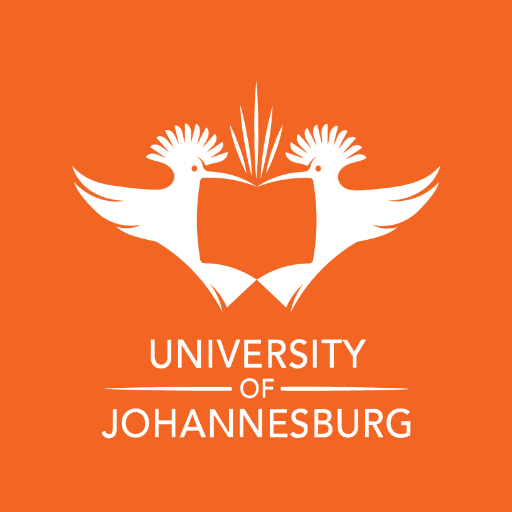
- Vision, Mission and Values
- Executive Leadership Group & Invitees
- Global Engagement
- Transformation Unit
- Registrar’s Portfolio
- Publications
- Strategic Plan
- Student Regulations
- UJ Key Statistics
- Student Portal / uLink
- Students Achievements
- Academic Calendar and Regulations
- Assessments Information
- Graduation Information
- Student Finance
- Prescribed Booklists
- Staff Web Mail
- Staff Intranet
- Academic Transcripts
- Convocation
- Dignitas Awards
- Academic Centres
- Academic Development and Support
- Research Centres
- Commercialisation and Technology Transfer
- Division of Academic Planning, Quality Promotion and Academic Staff Development
- Division for Institutional Planning, Evaluation and Monitoring
- Graphic Studio
- Institutional Office For HIV and AIDS
- Human Resources
- Language Unit
- Frequently Asked Questions (FAQs)
- More listed services…
- Online Qualification Verification
- Online Payments
- UJ Arts & Culture
- Postgraduate School
- School of Tourism and Hospitality
- Institute for Pan-African Thought and Conversation
- Institute for Intelligent Systems
- Procurement and Tenders
MSc in Botany (Research)
Faculty Website: Faculty of Science Department: Department of Botany and Plant Biotechnology Programme Level: Postgraduate Programme Name: MSc in Botany (Research) Programme Code: M2029Q
Medium of Facilitation: part-time, Full-Time NQF Level: 9 NQF Credits: 180 SAQA: 74025
Application Start Date : 1 April 2024 Application End Date: 14 March 2025
Campus: Auckland Park Kingsway
Contacts: 011 559 4689 Email: [email protected]
Duration of Study: 2 Years Full-Time and 3 Years Part-Time
Programme Fees
The primary purpose of the MSc dissertation is to provide students with specialised advanced education and training while meeting the requirements of a specific research component so that students can master the required experimental and technological skills and necessary fieldwork competencies such as innovation, decision-making, strategic thinking and organisational skills. A dissertation-based Master of Science degree consists of a comprehensive study of a specialized area in the field of specialisation, reported on and submitted in the form of a dissertation at the end of the programme. The degree demands a high level of intellectual and theoretical knowledge and insight into problems related to the field of study and of critical reasoning, formulation, analysis and evaluation of a specific problem in the field of study.
Admission Requirements
The minimum admission requirement for a master programme is a qualification at NQF Level 8, an honours qualification, a four-year 480 NQF credit bachelor’s qualification (with a minimum of 96 credits at NQF Level 8), or a postgraduate diploma, in the same or a relevant field of study or discipline. The relevant field of study or discipline is determined by the relevant Faculty Board, approved by the Senate Higher Degrees Committee and ratified by Senate. Admission requirements are department specific and approved by the Executive Dean. Admission to a master programme is not automatic even if the applicant is in possession of an appropriate preceding qualification. A department may, subject to approval by the Executive Dean, require a student to successfully complete certain specified components before the master’s degree can be awarded. Students applying for master’s degree studies in general need to have obtained their previous relevant degree with an average mark of at least 65% or equivalent. In exceptional cases a student with a mark between 60% and 64% may apply to be accepted for study provided a motivation from the Supervisor and the Head of Department where the study is to be conducted is submitted to the Executive Dean of the Faculty of Science for approval.
More Information

Latest News

UJ’s Doornfontein Campus Clinic achieves top compliance rating in Gauteng
The University of Johannesburg’s Occupational Health Practice (UJ OHP) at the Doornfontein

Prof Lionel Posthumus’s legacy of excellence in African Languages honoured…
The legacy of Lionel Posthumus, Professor and Senior Research Associate

Vice-Chancellor Message – 30 August 2024
This week, I led a UJ delegation to Ghana to

Transforming lives: Boitumelo Kuzwayo’s vision for UJ’s Commercial Accounting Department
Boitumelo Kuzwayo serves as the Head of the Department of Commercial

UJ launches the Venture Mentoring Services (VMS) Programme to support…
The University of Johannesburg has introduced an innovative mentorship programme designed
UJ Faculties

College of Business and Economics (CBE)
Created from the former Faculties of Management, and Economic and Financial Sciences

Faculty of Art, Design And Architecture
Industry-relevant and competitive professional programmes

Faculty of Education
Education has the power to transform human lives

Faculty of Engineering & the Built Environment
First in South Africa offering a full range of professional engineering qualifications

Faculty of Health Sciences
A preferred learner experience and innovative methods

Faculty of Humanities
To the benefit of individuals, the University and the community we serve

Faculty of Law
Traditional, specialised and short course Law programmes

Faculty of Science
Innovatively creating new knowledge and leading scientists

Johannesburg Business School
JBS. The Business of Reimagining Your Future.
Directions & Maps
Tel: +27 11 559 4555
+27 87 2406 854
e-mail: [email protected]
- Protection Services
Quick Links
- Frequently Asked Questions
- UJ Ethics Hotline
- Support Services
- Supply Chain Management
- Stakeholders Report
- View Quick Links
Connect to Us
© 2024 All Rights Reserved | University of Johannesburg | T&Cs Sign In | POPIA and PAIA
Your privacy: By clicking “Accept all cookies”, you agree University of Johannesburg can store cookies on your device and disclose information in accordance with our Cookie Policy. https://www.uj.ac.za/terms-and-conditions/#cp
Privacy overview.
| Cookie | Duration | Description |
|---|---|---|
| cookielawinfo-checkbox-analytics | 11 months | This cookie is set by GDPR Cookie Consent plugin. The cookie is used to store the user consent for the cookies in the category "Analytics". |
| cookielawinfo-checkbox-functional | 11 months | The cookie is set by GDPR cookie consent to record the user consent for the cookies in the category "Functional". |
| cookielawinfo-checkbox-necessary | 11 months | This cookie is set by GDPR Cookie Consent plugin. The cookies is used to store the user consent for the cookies in the category "Necessary". |
| cookielawinfo-checkbox-others | 11 months | This cookie is set by GDPR Cookie Consent plugin. The cookie is used to store the user consent for the cookies in the category "Other. |
| cookielawinfo-checkbox-performance | 11 months | This cookie is set by GDPR Cookie Consent plugin. The cookie is used to store the user consent for the cookies in the category "Performance". |
| viewed_cookie_policy | 11 months | The cookie is set by the GDPR Cookie Consent plugin and is used to store whether or not user has consented to the use of cookies. It does not store any personal data. |
Masters in Wildlife Biology & Conservation
- Program Partners
- Program Funding
- Program Governance
- Course Content
- M.Sc. Thesis Publications
You are here
Msc thesis publications.
89. Ishika Ramakrishna, Ajith Kumar, Maan Barua & Anindya Sinha (2023) Ethos, Pathos, Logos: Affective and Emotive Ethnographies of Human–Macaque Lifeworlds. In Ecological Entanglements: Affect, Embodiment and Ethics of Care . Eds Ambika Aiyadurai, Arka Chattopadhyay and Nishaant Choksi.
88. Rao, R., Alcoverro, T., Kongari, P., Yoayela, S., Arthur, R., & D'Souza, E. (2023). Tolerance to aerial exposure influences distributional patterns in multi-species intertidal seagrass meadows. Marine Environmental Research , 191, 106146.

- Study Abroad Get upto 50% discount on Visa Fees
- Top Universities & Colleges
- Abroad Exams
- Top Courses
- Read College Reviews
- Admission Alerts 2024
- Education Loan
- Institute (Counselling, Coaching and More)
- Ask a Question
- College Predictor
- Test Series
- Practice Questions
- Course Finder
- Scholarship
- All Courses
- B.Sc (Nursing)
MSc Botany Syllabus, Subjects, 1st Year, Entrance Exam Syllabus, Semester, Colleges, Core, Elective, Books

Collegedunia Team
Content Curator
M.Sc in Botany is a two-year postgraduate degree course that focuses on the main areas of plants and their structure in nature and biology. Its aim is to deliver high-quality courses with strong vocational elements and professional skills development embedded across the curriculum.
Admission for the M.Sc in Botany course is based on both merit-based and entrance exams. The core subjects of MSc Botany are Phycology and Limnology, Mycology and Plant Pathology, Plant Morphology and Anatomy, Plant Physiology etc. There are 100 marks for each paper and there is a total of 600 marks in each semester. Each semester contains a total of 20 credit points.
See Also : Botany Courses
The list of elective subjects available for MSc Botany are Applied Phycology, Plant Pathology and Plant Protection, Biology of Bryophytes, Taxonomy of Angiosperms, Biology and diversity of Pteridophytes and Gymnosperms etc. Each of the elective subjects contain 3 credits for each subject.
Table of Contents
MSc Botany Course Details
Msc botany syllabus, msc botany subjects.
3.1 First Semester
3.2 Second Semester
3.3 Third Semester
3.4 Fourth Semester
MSc Botany Entrance Exam Syllabus
Msc botany syllabus hpu.
- MSc Botany Syllabus Kumaun University
MSc Botany Syllabus in DDGU
Msc botany syllabus in university of calcutta, msc botany syllabus in mgsu bikaner, msc botany top colleges, msc botany books, msc botany syllabus: faqs.
| Course Name | Master of Science in Botany |
| Course Level | Post Graduate |
| Duration | 2 Years |
| Admission Process | Entrance Exams and Merit Based |
| Top Entrance Exam | BHU-PET, DU Entrance Test (DUET), CUCET, LPU NEST, TUEE |
| Eligibility | Graduation in BSc Botany with minimum 50% marks. |
| Top Colleges | Jain University, Banglore; Fergusson College, Pune; St. Xavier’s College; and Ramjas College, New Delhi |
| Average Fees | INR 30,000- INR 1 Lakhs per annum |
| Semester I | Semester II |
|---|---|
| Microbiology | Taxonomy of Angiosperms |
| Phycology | Genetics and Genomics |
| Bryophytes, Pteridophytes, and Gymnosperms | Paleobotany and Palynology |
| Cell Biology and Biomolecules | Mycology and Plant Pathology |
| Plant Anatomy and Developmental Biology | - |
| Semester III | Semester IV |
| Microbial Biotechnology | Computer Applications and Bioinformatics |
| Plant Physiology and Biochemistry | - |
| Plant Molecular Biotechnology and Biology | - |
| Plant Physiology and Pharmacognosy | - |
MSc Botany subjects are spread across 2 years and 4 semesters. The important subjects in MSc Botany are mentioned below:
MSc Botany First Semester Subjects
- Microbiology: Microbiology studies the biology of microscopic organisms viruses, bacteria, algae, fungi, slime molds, and protozoa.
- Phycology: Phycology also known as algology, phycology is a branch of life science. It is the study of algae that is important as primary producers in aquatic ecosystems.
- Bryophytes, Pteridophytes, and Gymnosperms: Bryophytes are the preliminary type of plants which includes mosses and liverworts. Pteridophytes include fern plants and Gymnosperms are seed-bearing plants, it includes cycads and conifers.
See Also : PhD Botany
MSc Botany Second Semester Subjects
- Taxonomy of Angiosperms: Taxonomy deals with the laws governing the classification of plants. It means arrangement and nomos- laws and is also known as systematic botany.
- Genetics and Genomics : Genomics is distinct from genetics. While genetics is the study of heredity, genomics is defined as the study of genes and their functions, and related techniQues.
MSc Botany Third Semester Subjects
- Microbial Biotechnology: Microbial biotechnology deals with the manipulation through genetic engineering to produce valuable products for various applications.
- Plant Physiology and Biochemistry : Plant Physiology and Biochemistry publishes original theoretical, experimental and technical contributions in the various fields of plant physiology at diverse levels of integration.
MSc Botany Fourth Semester Subjects
- Computer Applications and Bioinformatics: Bioinformatics refers to the application of computer technology to the effective use of biological and biomedical data.
| Topics | Subjects |
|---|---|
| Viruses | Discovery, general structure, replication, DNA virus (T-phage); lytic and lysogenic cycle, RNA virus (TMV); Bacteria: General characteristics and cell structure; reproduction vegetative, asexual and recombination (conjugation, transformation and transduction); economic importance |
| Fungi | General characteristics, classification (Alexopolous, Mims & Blackwell), cell wall composition, nutrition and reproduction; life cycle of Rhizopus (Zygomycota), Venturia (Ascomycota), Agaricus (Basidiomycota). Fungi, bacteria, MLO’S and RLO’S. Major diseases, disease symptoms and management practices in apple, pear and apricot. Symptoms, causal organism, disease cycle and control of plant diseases |
| Algae | General characteristics, classification of Algae (Round 1965), criteria for algal classification; range of thallus organization; morphology, reproduction and life cycle of Nostoc, Chlamydomonas, Oedogonium, Vaucheria, Ectocarpus, Batrachospermum; economic importance of algae. Archegoniate – General characteristics, adaptations to land habit. |
| Bryophytes | General characteristics, Proskauer’s classification (upto family); morphology, anatomy and reproduction (excluding developmental details) of Marchantia and Funaria; Evolution of sporophyte; apogamy and apospory; alternation of generation; economic importance of bryophytes. |
| Pteridophytes | General characteristics; classification of Pteridophytes; Early land plants; morphology, anatomy and reproduction (excluding developmental details) of Selaginella, Equisetum and Dryopteris; heterospory and origin of seed habit; evolution of stellar systems in pteridophytes. Gymnosperms - General characteristics,; morphology, anatomy and reproduction (excluding developmental details) of Cycas and Pinus; economic importance of gymnosperms |
| Plant taxonomy | Introduction to Plant taxonomy; types of classification - artificial, natural and evolutionary;classification systems - Bentham and Hooker (upto series), Angiosperm Phylogeny Group (AGP) (upto order level). Numerical taxonomy |
| Herbarium | Role of herbarium and botanical garden, important herbaria and botanical gardens of the world and India; Flora, identification Keys: single-access and multi-access; taxonomic evidences from cytology, phytochemistry and molecular data; taxonomic hierarchy – ranks, categories and taxonomic groups; typification, author citation, valid publication, principle of priority. |
| Meristematic and permanent tissues | Simple and Complex tissue (Types and Functions); Organization of root and shoot apical meristem- Histogen theory; Tunica and corpus theory. Plant organs: Structure of a typical dicot and monocot root, stem and leaf. Secondary growth: Cambium- types, structure and function, Secondary growth in typical dicot root and stem; General account of wood structure; Adaptations: General structure and function of cuticle, epidermis and stomata; General account of adaptations in xerophytes and hydrophytes. |
| Structural organization of flower | Development and structure of anther and pollen; Structure and types of ovules; Types of embryo sacs; Structure of a typical embryo sac. Pollination and fertilization: Types of pollination –Floral modifications favoring self and cross pollination; Double fertilization; Seed dispersal mechanism. Embryo and Endosperm: Endosperm development, structure and functions; Structure and development of dicot and monocot embryo. |
| Plant Water Relations | Water potential and its components; Transpiration and its significance; Factors affecting transpiration; Ascent of Sap, Pressure flow model; Phloem loading and unloading. Mineral nutrition: Essential elements, macro and micronutrients; Criteria of essentiality of elements; Role of essential elements; Transport of ions across cell membrane, active and passive transport. Photosynthesis: Photosynthetic Pigments ; light harvest complexes, Photosystem I and II, Electron transport and mechanism of ATP synthesis. |
| Respiration | Glycolysis, anaerobic respiration, TCA cycle; Pentose Phosphate Pathway, Electron Transport system and Oxidative phosphorylation. Enzymes: Structure, Classification and properties; Mechanism of enzyme action and enzyme inhibition. Nitrogen metabolism: concept of symbiotic and asymbiotic associations, Biological nitrogen fixation. |
| The cell theory | Structure of prokaryotic and eukaryotic cells; structure and function of biomembranes; fluid mosaic concept, Cell wall-structure and functions. Structure and functions of ribosomes, centrioles, basal bodies, endoplasmic reticulum, golgi bodies, lysosomes, peroxisomes and glyoxisomes, mitochondria, chloroplast and nucleus. |
| Ecology | soil - origin, formation and composition, soil profile; water - states of water in the environment, precipitation types; light and temperature as ecological factors;adaptation of hydrophytes and xerophytes, Plant communities - characteristics; ecotone and edge effect; succession - processes and types. |
| Semester I | Semester II |
|---|---|
| English/MIL communications/ Course-I Environmental Science | English/MIL communications/ 4 Environmental Science |
| Biodiversity (Microbes, Algae, Fungi BOTA and Archegoniate) | Plant Ecology and Taxonomy |
| Biodiversity (Microbes, Algae, Fungi Practical/Tutorial and Archegoniate) Lab | Plant Ecology and Taxonomy Lab |
| Semester III | Semester IV |
| Plant Anatomy and Embryology | Plant Physiology and Metabolism |
| Plant Anatomy and Embryology Practical | Plant Physiology and Metabolism Practical |
| Biofertilizers or Herbal Technology | - |
MSc Botany Syllabus Kumaun university
| Semester I | Semester II |
|---|---|
| Microbiology (Bacteria, Viruses and Lichens) | Gymnosperms and Palaeobotany |
| Phycology | Taxonomy of Angiosperms |
| Mycology | Plant Morphology, Anatomy and Embryology |
| Bryology and Pteridology | Cell and Molecular Biology |
| Semester III | Semester IV |
| Plant Ecology | Plant Resource, Utilization and Conservation |
| Cytogenetics and Plant Breeding | Elective Courses: 100 (i) Forest Ecology (ii) Plant Pathology (iii) Taxonomy of Angiosperms (iv) Ethnobotany, Traditional Knowledge and Intellectual Property Rights (v) Bryology (vi) Environmental Botany |
| Plant Biotechnology | - |
| Plant Physiology and Biochemistry | - |
| Semester I | Semester II |
|---|---|
| Algae and Bryophytes | Angiosperms I (Taxonomy & Biosystematics) |
| Fungi and Plant Viruses | Angiosperms II (Morphology, Embryology and Anatomy) |
| Pteridophyta, Gymnosperms and Paleobotany | Genetics and Cytogenetics |
| Microbiology | Soil Science, Phytogeography |
| Practical | Practical |
| Semester III | Semester IV |
| Plant Biochemistry | Molecular Genetics, Genetic Engineering & Biotechnology |
| Plant Physiology | Plant Resource Utilization and Conservation |
| Plant Ecology | Cytology, Plant Breeding and Biostatistics |
| Elective paper /Optional Paper | Dissertation and Viva-voce: Based on Elective /Optional Papers |
| Practical | Practical |
| Semester I | Semester II |
|---|---|
| Microbiology | Palaeobotany and Palynology |
| Phycology | Taxonomy of Angiosperms |
| Bryophytes,Pteridophytes and Gymnosperms | Phytochemistry and Pharmacognosy |
| Cell Biology | Genetics and Genomics |
| Semester III | Semester IV |
| Mycology and Plant pathology | Plant Anatomy and Developmental Biology |
| Plant Physiology and Biochemistry | Plant Biotechnology |
| Optional Paper I | Ecology |
| Choice based credit course (CBCS 1) | Optional Paper II |
| Choice based credit course (CBCS 2) | - |
| Syllabus | |
|---|---|
| Microbiology, Phycology, Mycologyand Plant Pathology | Angiosperm Taxonomy, Morphology, Anatomy And Embryology |
| Bryology, Pteridology And Gymnosperms | Molecular Biology, Genetics, Biotechnology,Plant Brreding And Biometry |
| Ecology, Phytogeography, Ethnobotany And Economic Botany | Advanced Plant Ecology I |
| Biochemistry And Plant Physiology | Advanced Plant Ecology II |
| Advanced Plant Pathology I | Advanced Plant Biotechnology I |
| Advanced Plant Pathology II | Advanced Plant Biotechnology II |
| Advanced Plant Physiology I | - |
| Advanced Plant Physiology II | - |
| Name of the College | Fees (INR) |
|---|---|
| 1,25,000 | |
| 48,000 | |
| 15,000 | |
| 14,000 | |
| 66,000 | |
| 27,000 | |
| 19,000 | |
| 16,000 | |
| 50,000 | |
| 16,000 |
| Name of the Book | Author |
|---|---|
| Concise Encyclopedia of Plant Pathology | P. Vidhyasekaran |
| A Dictionary of Ecology, Evolution, and Systematics | R. J. Lincoln; G. A. Boxshall; P. F. Clark |
| Chemical Microbiology | Rose |
| Chromatography: Concepts and Contrasts | James Miller, John Wiley, and Sons |
| Encyclopedia of Plant and Crop Science | Robert M. Goodman (Editor) |
Ques. What is MSc Botany?
Ans . M.Sc in Botany is a two-year postgraduate degree course which focuses on the main areas of plants and their structure in nature and biology.
Ques. What are the core subjects of MSc Botany?
Ans. The core subjects of MSc Botany:
- Microbiology
- Cell Biology
- Genetics and Genomics
- Plant Physiology
- Biochemistry
- Bioinformatics
Ques. What are the electives in MSc Botany?
Ans. The electives in MSc Botany includes:
- Forest Ecology
- Plant Pathology
- Taxonomy of Angiosperms
- Ethnobotany, Traditional Knowledge and
- Intellectual Property Rights
- Environmental Botany
Ques. Who can do MSc Botany?
Ans . Apirants must have a bachelor's degree related to biology with any discipline with a minimum of 50% aggregate marks.
Ques. What are the Job options after MSc Botany?
Ans. The Job options after MSc Botany:
- Ecologists.
- Project Manager.
- Environmental or Safety Specialist.
- Scientific Researcher.
- Quality Control Officer.
- Lab Technician.
- Medical Representative.
Ques. What is the average salary of MSc Botany graduate?
Ans. The average starting salary of a MSc Botany graduate India ranges from INR 3,00,000 - 5,00,000.
Ques. What are the project topics of MSc Botany?
Ans. The project topics of MSc Botany:
- Combating the global food crisis: diazotroph bacteria as a cereal crop growth promoter
- The lifespan of a genetically engineered tomato
- Environmentally friendly method to suppress weeds
- Investigating seed tolerance for freezing temperatures
Ques. What are the top colleges of MSc Botany?
Ans . Jain University, Banglore; Fergusson College, Pune; St. Xavier’s College; and Ramjas College, New Delhi are the top colleges of MSc Botany.
Ques. Is it worth doing MSc Botany?
Ans. Yes, because MSc in Botany degree holders have ample scope for job opportunities in diverse sectors. They can explore employment opportunities in public health service, agriculture department, forest service, and more.
Ques. What can be done after completion of MSc Botany course?
Ans . M.Sc in Botany graduate can apply for any of the below mentioned program:
Master of Science [M.Sc] (Botany) : 5 answered questions
Ques. how do i prepare for the jnu life sciences msc entrance examination.
● Top Answer By Mahak Chatterjee on 04 Aug 23
Ques. How is the MSc in life sciences in NIT Rourkela?
● Top Answer By Sudeeksha Verma on 17 Aug 23
Ques. Should I join IISC or JNCASR for integrated MSC-PHD in biology?
● Top Answer By Seenu Arora on 05 Nov 22
Ques. Which is better, metallurgy at NIT Warangal or an MSc in Biology at BITS Goa?
● Top Answer By Kalyan Shastri on 16 Aug 23
Ques. Is Mount Carmel College good for life science?
● Top Answer By Tripti Bansal on 17 Aug 22
Master of Science [M.Sc] (Mathematics)
Master of science [m.sc] (chemistry), master of science [m.sc] (physics), master of science [m.sc] (computer science), master of science [m.sc] (zoology), bachelor of science [b.sc] (nursing), bachelor of science [b.sc] (forensic sciences), master of science [m.sc] (botany) colleges in india.
![msc botany dissertation topics Chandigarh University - [CU]](https://images.collegedunia.com/public/college_data/images/appImage/1614949268bg.png?h=150&w=320&mode=stretch)
Chandigarh University - [CU]
![msc botany dissertation topics Banaras Hindu University - [BHU]](https://images.collegedunia.com/public/college_data/images/appImage/25924_BHU_APP.jpg?h=150&w=320&mode=stretch)
Banaras Hindu University - [BHU]
![msc botany dissertation topics Acharya Nagarjuna University - [ANU]](https://images.collegedunia.com/public/college_data/images/appImage/25344_ANU_APP.jpg?h=150&w=320&mode=stretch)
Acharya Nagarjuna University - [ANU]
![msc botany dissertation topics Madras Christian College - [MCC]](https://images.collegedunia.com/public/college_data/images/appImage/2708_MCC.jpg?h=150&w=320&mode=stretch)
Madras Christian College - [MCC]

Miranda House
![msc botany dissertation topics Hansraj College - [HRC]](https://images.collegedunia.com/public/college_data/images/appImage/1521444819cvrimge.png?h=150&w=320&mode=stretch)
Hansraj College - [HRC]

Fergusson College
![msc botany dissertation topics Ramakrishna Mission Vivekananda Centenary College Rahara - [RKMVCC]](https://images.collegedunia.com/public/college_data/images/appImage/1487569899AppNew.jpg?h=150&w=320&mode=stretch)
Ramakrishna Mission Vivekananda Centenary College Rahara - [RKMVCC]
Subscribe to our news letter.


IMAGES
VIDEO
COMMENTS
Here is the list of dissertation project topics for BSc, MSc, and Ph.D. Botany and Ecology students. Best Selected Botany Dissertation Topics List for college students. Below is the list of dissertation topics in botany, this list of research topics was created by our expert writers. Common Botany Dissertation Topics
Botany research can play a crucial role in addressing global challenges like climate change, food security, and biodiversity loss. Choosing a topic that contributes to solving or mitigating these challenges adds societal relevance to your work. Explore Local Flora: If applicable, explore the flora of your local region.
The discipline encompasses a broad spectrum of topics, ranging from the molecular and cellular levels to ecological and evolutionary aspects. Botanists examine plant structure, function, growth, reproduction, and their interactions with the environment. Botany research papers play a pivotal role in advancing our understanding of the plant kingdom.
BSc/MSc and ECTS: Bsc thesis (18 ECTS) MSc‐thesis: 24‐36 ECTS Type of work: Crop: tomato Measurements: these topics include building and development of methodology, growing plants under different light qualities, measurements of physiological (e.g. photosynthesis and transpiration) and morphological parameters.
Below is a list of our current open thesis topics. At the end of the page, you will also find a template for submitting an independent thesis proposal. ... Cooperative MSc/BSc on Plant & Insect Diverstiy at Linde research station ... WG Biodiversity/ Systematic Botany Maulbeerallee 1 14469 Potsdam. Tel.: +49 331 977-1914 Fax: +49 331 977-1977 E ...
The MSc programme in the Biodiversity and Taxonomy of Plants will equip botanists, taxonomists, conservationists and ecologists alike, with a high level of skill and a. e in pure and applied. lant taxonomy and related fields, includingcryptogams and fung. . This balance of academic rigour and pra.
List of Botany Project Topics and Research Thesis Materials PDF and DOC File Download for Final Year Undergraduate and Postgraduate Students in the University and Polytechnic. Approved Read-Made Botany Research Topics with Seminar Works for the Degree of National Diploma (ND), Higher National Diploma (HND), (BSC) Bachelor of Sciences, (MSC ...
Dissertations written by Kew Science MSc students taking the Kew-QMUL MSc in Plant and Fungal Taxonomy, Diversity and Conservation. Collection Details. Total items 133 Creator. Royal Botanic Gardens, Kew () Publisher Queen Mary, University of London. Language English. Search Collection MSc Dissertations: Plant and Fungal Taxonomy, Diversity and ...
The MSc thesis projects are clustered in research themes that cover the fields of interest of our lecturers, post-docs and PhD students. They are listed as supervisors. Many subjects are also suitable for a BSc thesis. Length and content of a thesis project may be tailored to your wishes. An overview of available project can be found in the TIP ...
Semester Wise MSc Botany Syllabus. The MSc Botany syllabus aims to equip candidates with knowledge on various topics in botany, including Phycology, Plant Morphology and Anatomy, Taxonomy of Angiosperms, Mycology, and more. Check out the table below to see the breakdown of the syllabus for each semester of the program. M.Sc Botany 1st Year Syllabus
Botany is a branch of biology that deals with the study of plants, including their structure, properties, and biochemical processes Afribary curates list of academic papers and project topics in Botany. You can browse Botany project topics, Botany thesis topics, Botany dissertation topics, Botany seminar topics, Botany essays, Botany text books ...
The details. Course: Plant Biology. Start date: October 2024. Study mode: Full-time. Duration: 1 year - 2 years. Location: Colchester Campus. Based in: Life Sciences (School of) Research in our School of Life Sciences covers a wide spectrum of biology from genes to ecosystems, and this broad-based structure provides opportunities for developing ...
The MSc is an intensive 12-month programme. You take eight coursework modules over the first six months and then undertake a project and write a dissertation in the second six months. Additionally, it is also possible to take a module from the list available for our MA programmes in Anthropology and from our MSc in Conservation Biology as ...
and Botany 2121, two upper division Botany courses, and approval of thesis advisor. Botany 4850. Thesis Research (2) F, S Independent research related to a student's approved thesis proposal. May be repeated as long as satisfactory progress is being made on the thesis topic. Prerequisite: Botany 4840 and approval of thesis advisor. Botany 4970 ...
The Botany Department is one of the largest and strongest plant-focused departments in North America with roots extending back to the founding of UBC in 1915. Our departmental community of more than 260 consists of 40 full-time faculty members, several part-time faculty or associates, about 100 graduate students, numerous post-doctoral fellows and research associates, laboratory technicians ...
original contributions in the submitted dissertation. After choosing the topic of the dissertation (themes allotted by university), use the following standards and structure to submit the synopsis. 1. Title of the Dissertation/Topic 2. Introduction: must include background of proposed study, problem statement and objectives. 3.
MSc thesis: In the Bioinformatics group, we offer a wide range of MSc thesis projects, from applied bioinformatics to computational method development. Here is a list of available MSc thesis projects.Besides the fact that these topics can be pursued for a MSc thesis, they can also be pursued as part of a Research Practice.. BSc thesis: As a BSc student you will work as an apprentice alongside ...
Overview. This degree targets individuals interested in getting involved with research in the fields of conservation, ecology, biodiversity, global change, botany, zoology with a view of furthering their studies to achieve a PhD or with the view of going into a research and conservation focused career. The combination of these research fields ...
After finalizing the topic the learners have to submit soft copy of synopsis, approved and duly signed by the supervisor to the mail id: [email protected]. *Note: After completion of the dissertation work, learners have to submit the hard copy of dissertation (approved and duly signed by the supervisor) by post in favour of "Co-ordinator ...
Suddee, Somran(Trinity College (Dublin, Ireland). Department of Botany, 2001) This thesis aims to provide a complete account of the tribe Ocimeae for Thailand, Laos, Vietnam, Cambodia and Burma. In addition, the relevant generic problems of Ocimeae in continental South East Asia are outlined, and ...
Purpose. The primary purpose of the MSc dissertation is to provide students with specialised advanced education and training while meeting the requirements of a specific research component so that students can master the required experimental and technological skills and necessary fieldwork competencies such as innovation, decision-making, strategic thinking and organisational skills.
93. Sultana, I., Khandakar, N., Das, D. K., Quader, S., & Viswanathan, A. (2024). Polychaete Worm Density Correlates with Aggregate Shorebird Density, Prey Intake ...
See Also: PhD Botany. MSc Botany Second Semester Subjects. Taxonomy of Angiosperms: Taxonomy deals with the laws governing the classification of plants. It means arrangement and nomos- laws and is also known as systematic botany. Genetics and Genomics: Genomics is distinct from genetics. While genetics is the study of heredity, genomics is ...